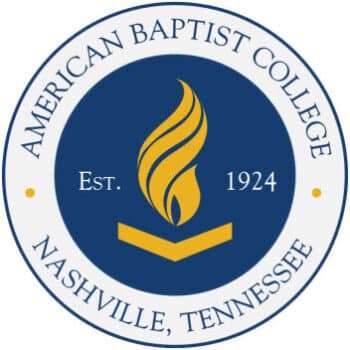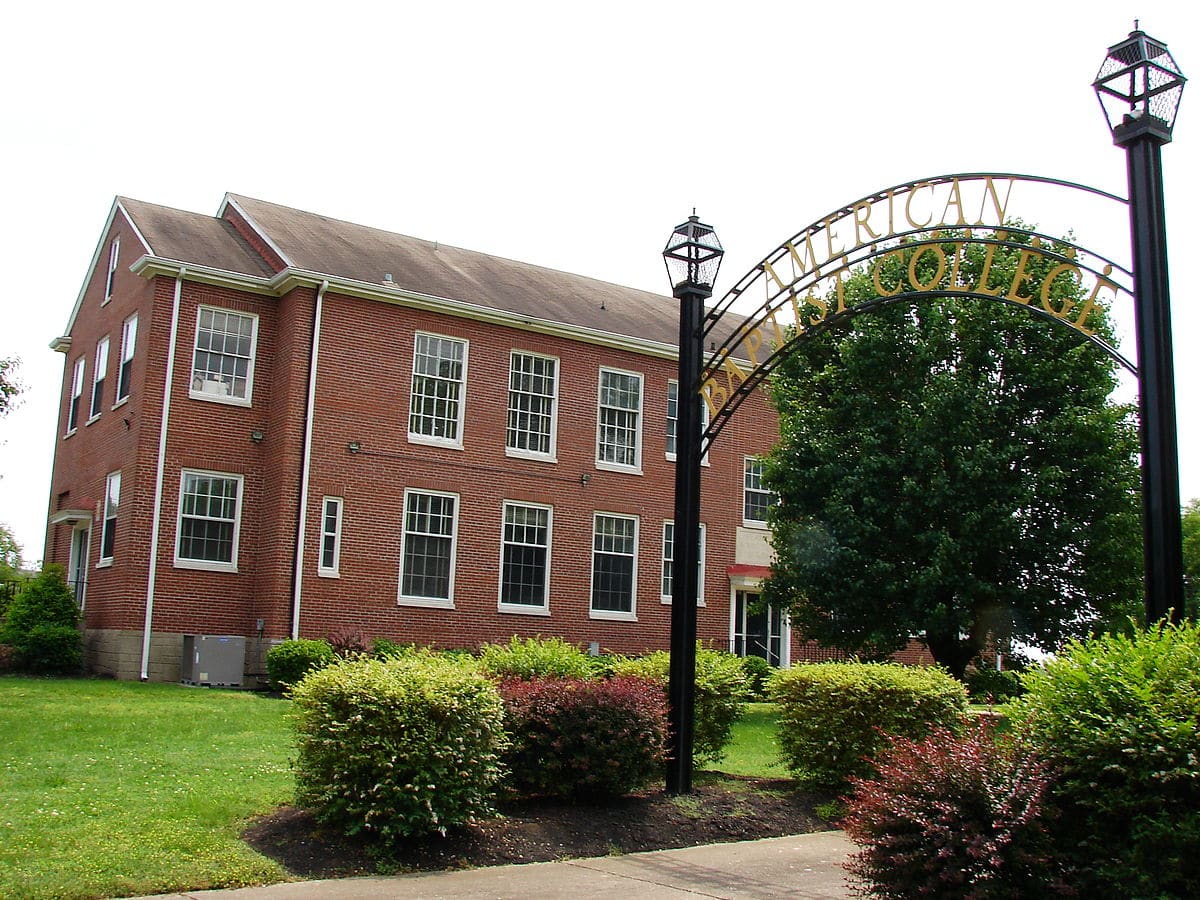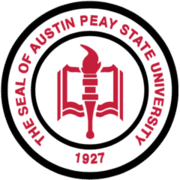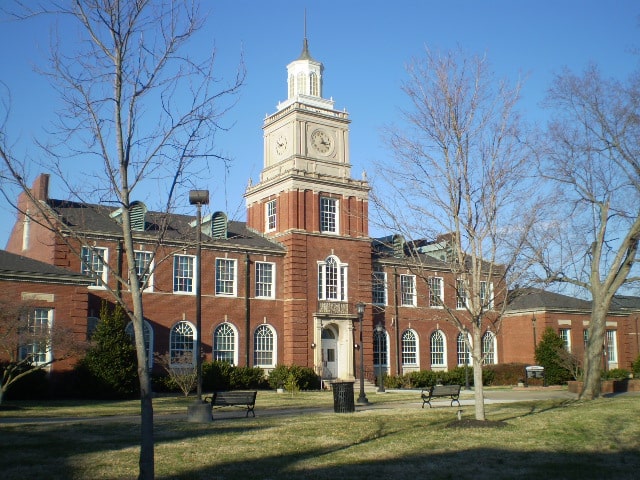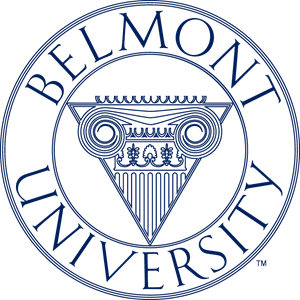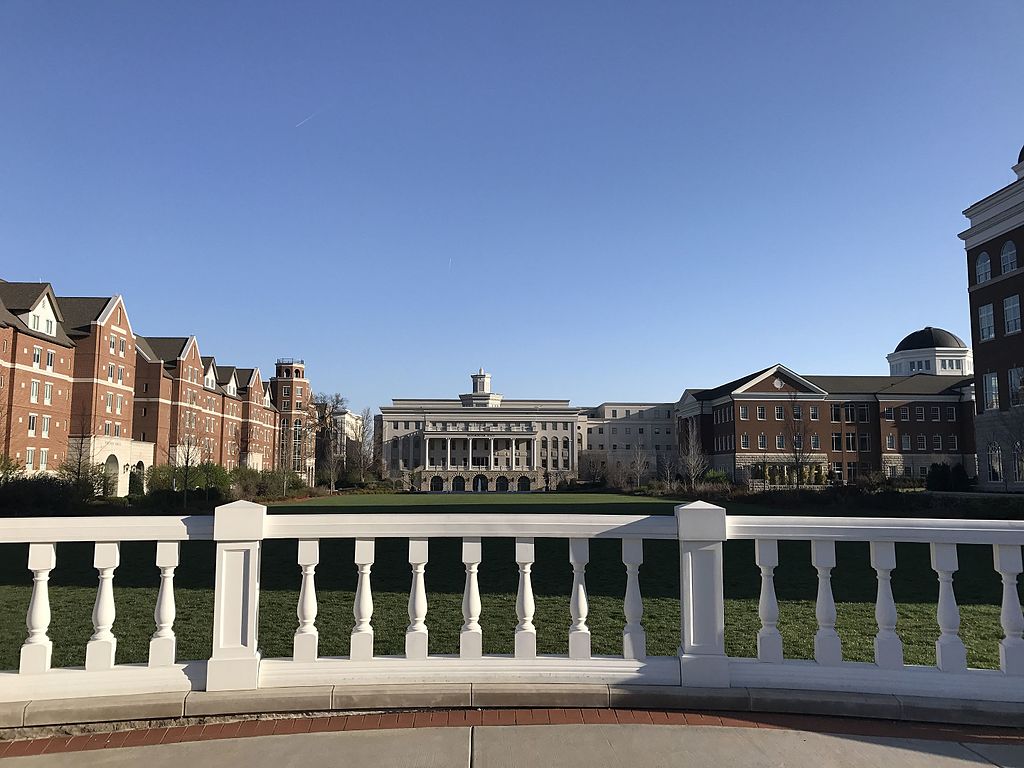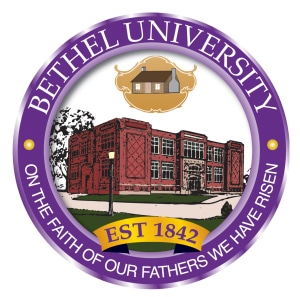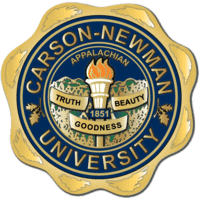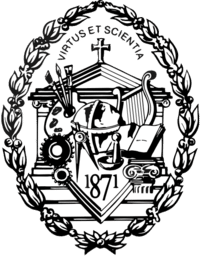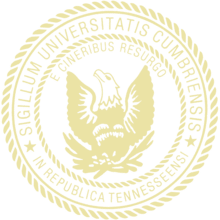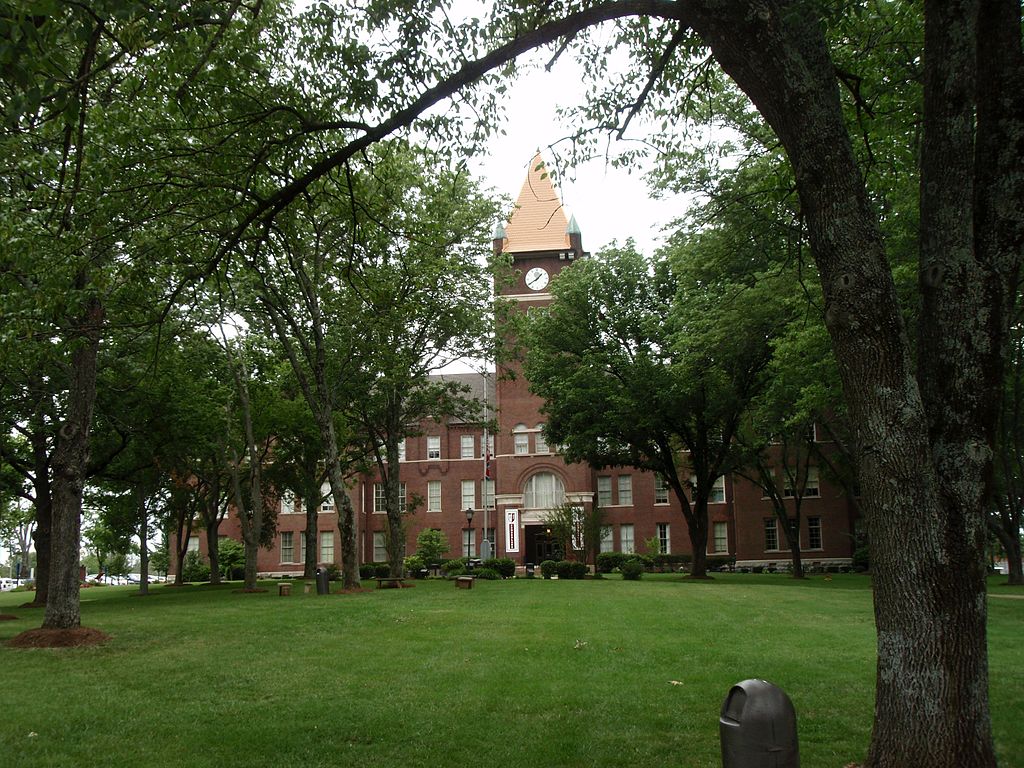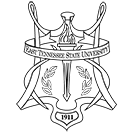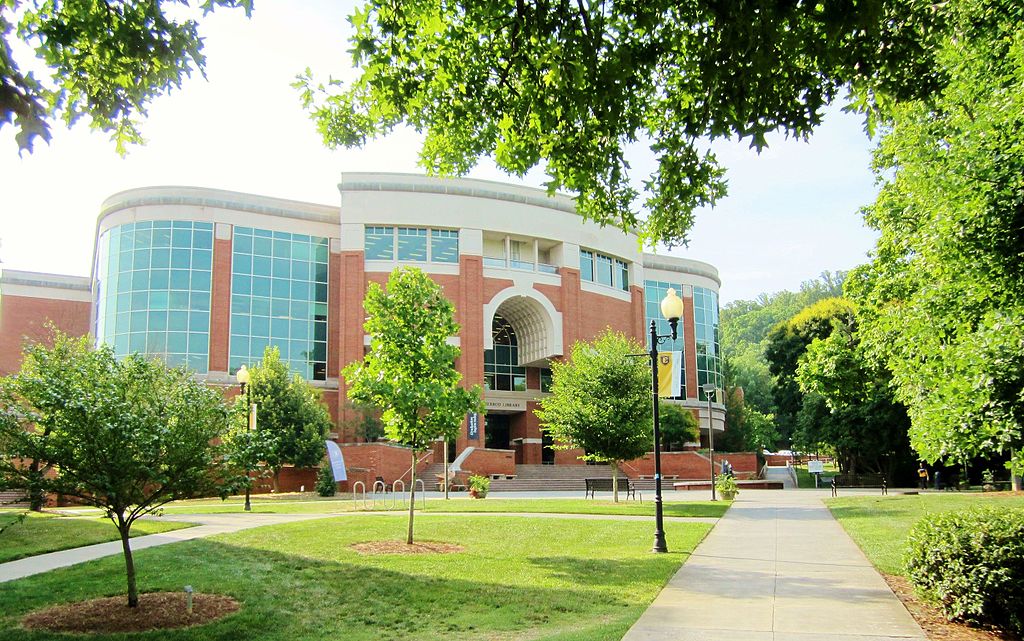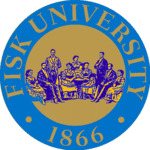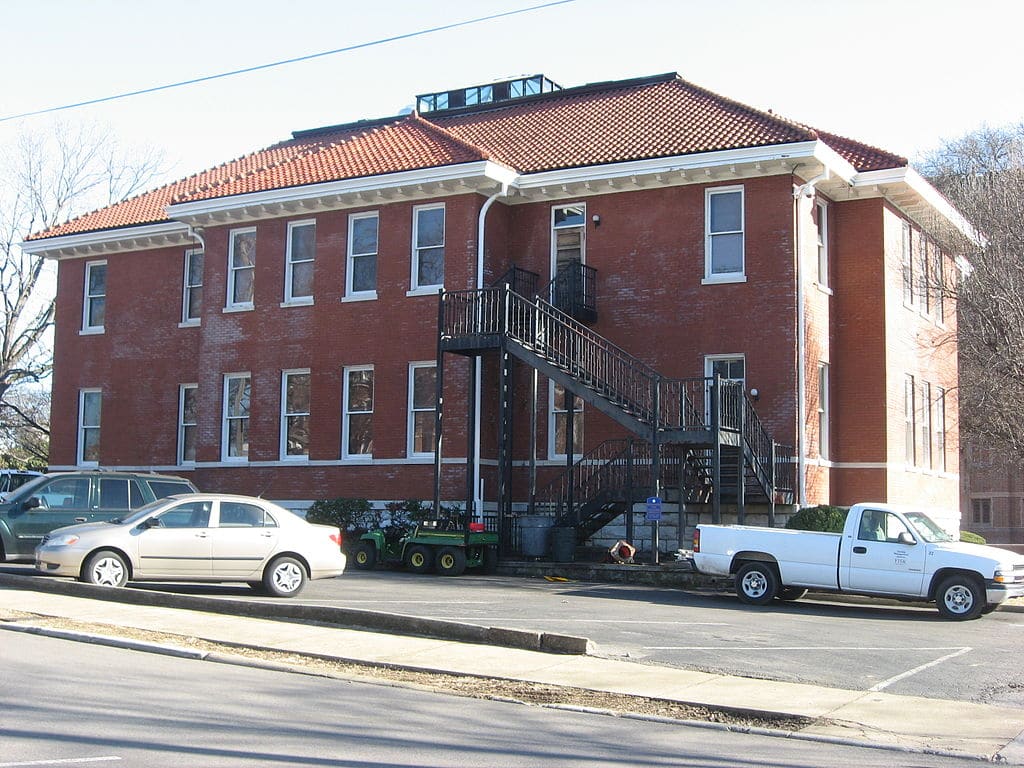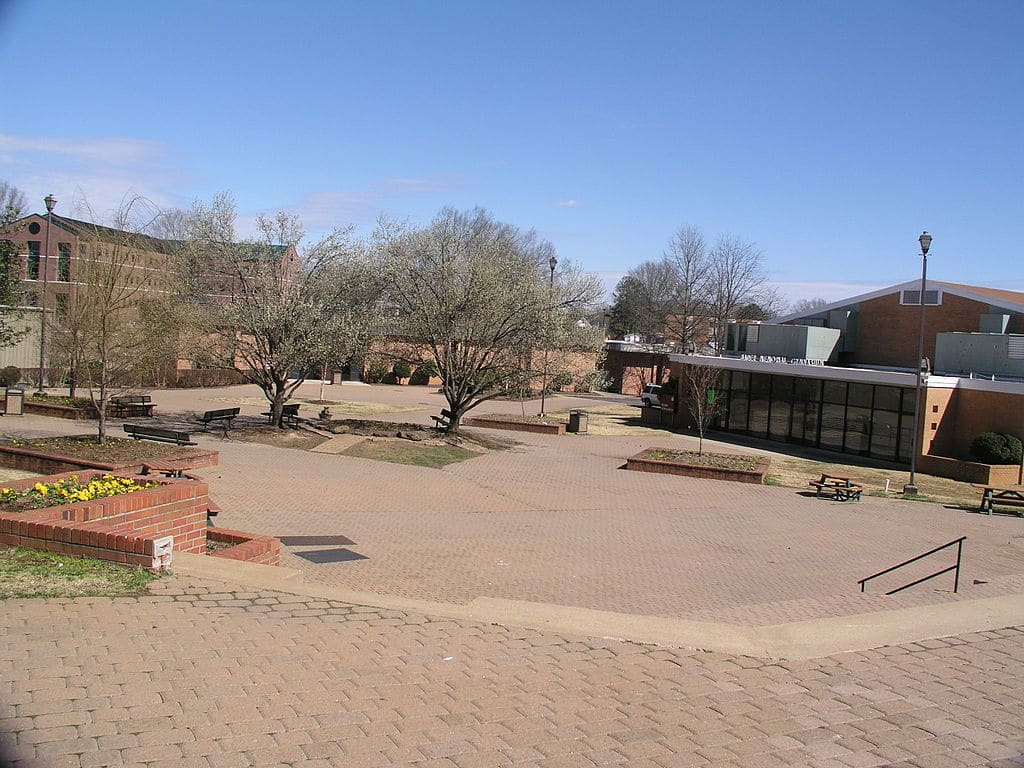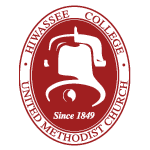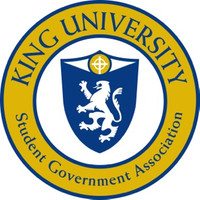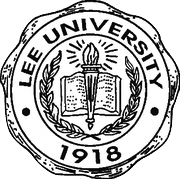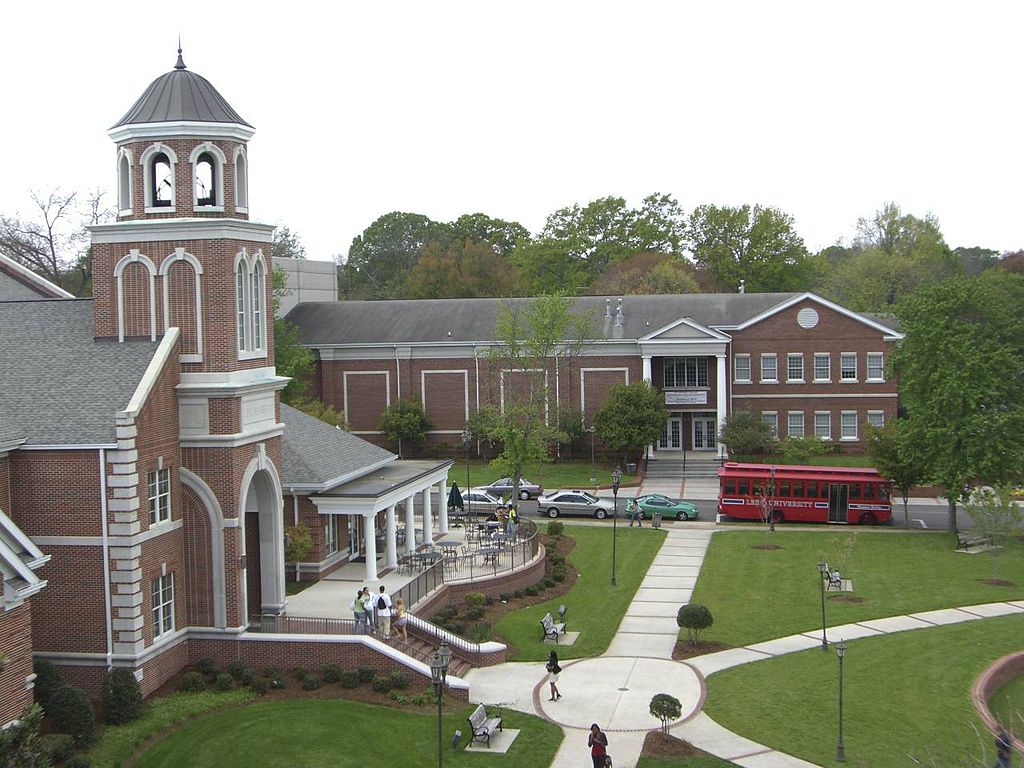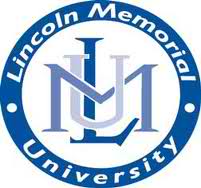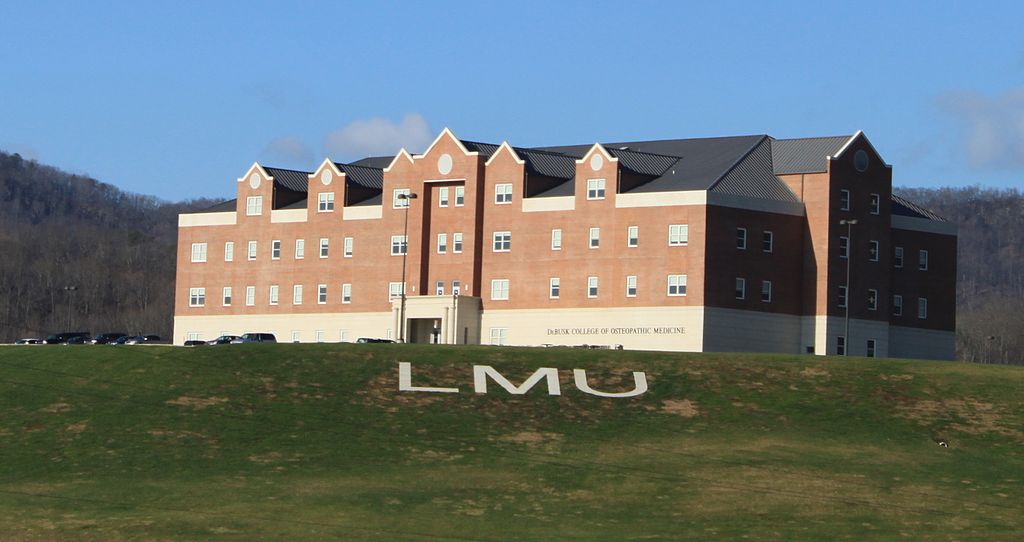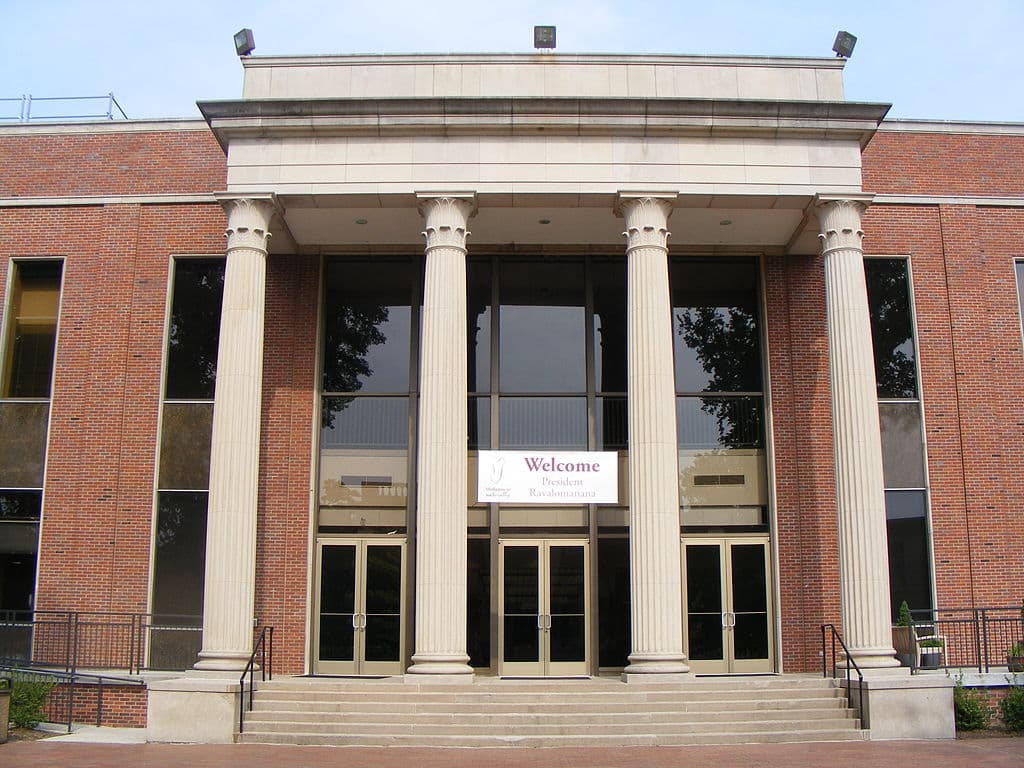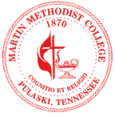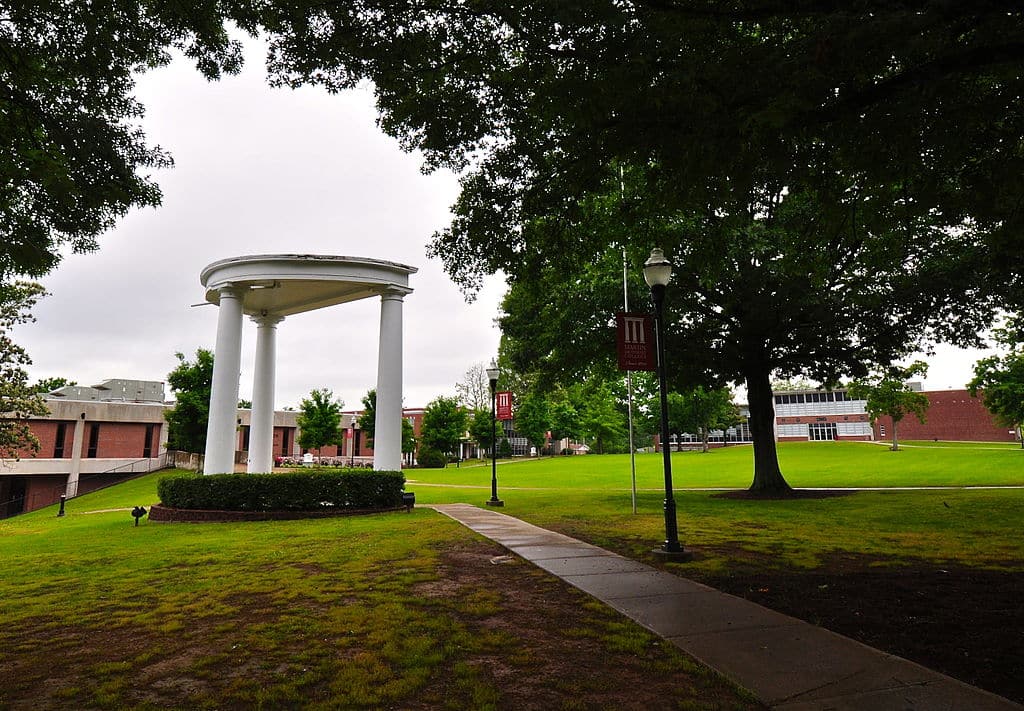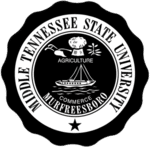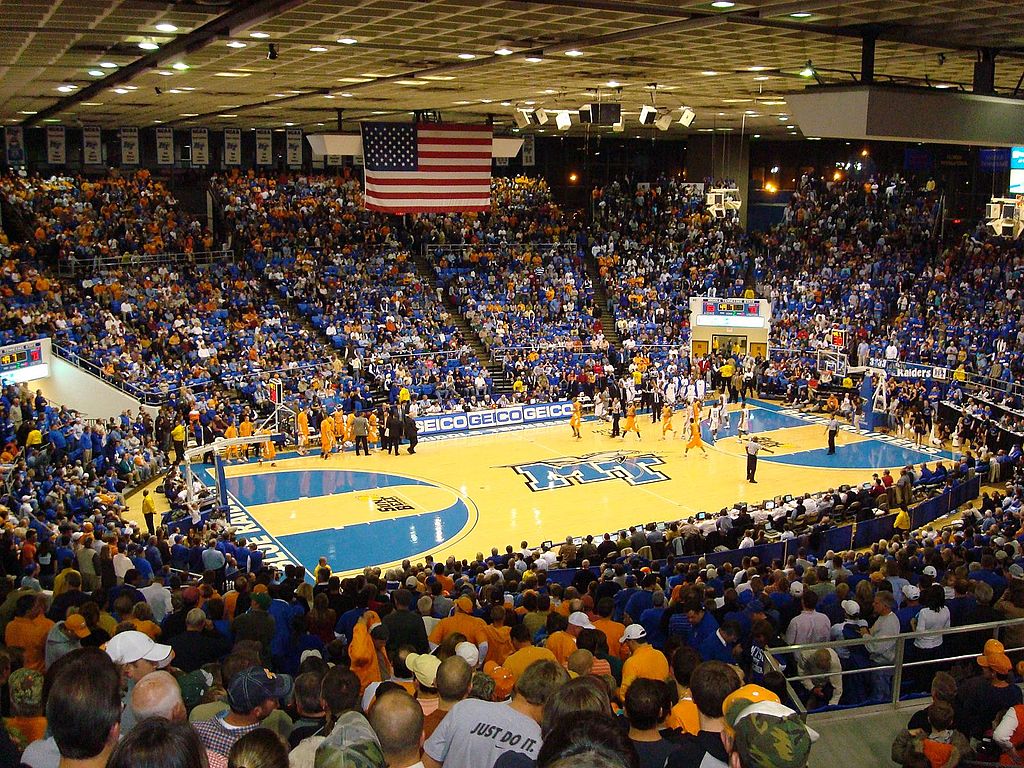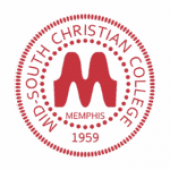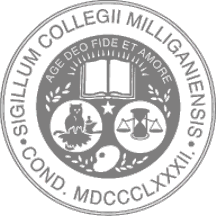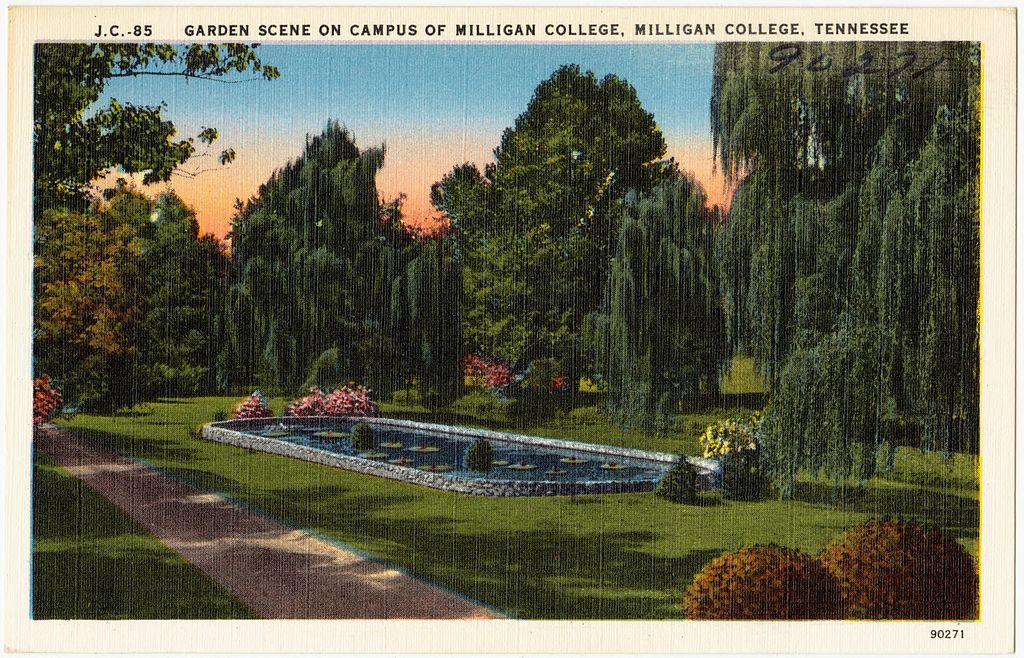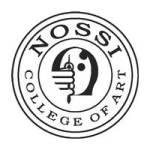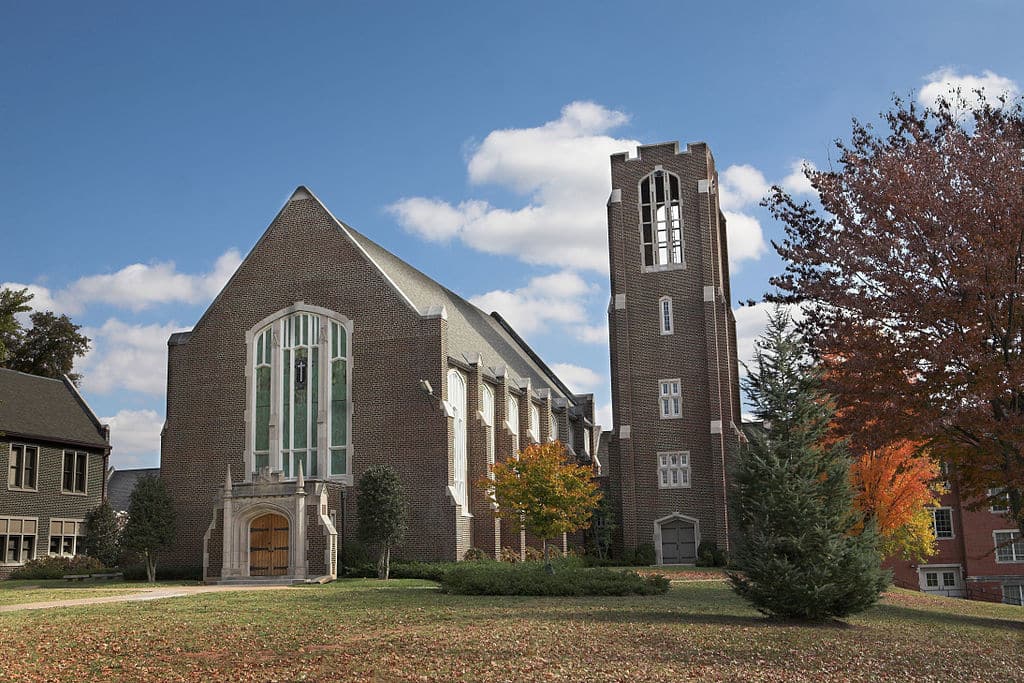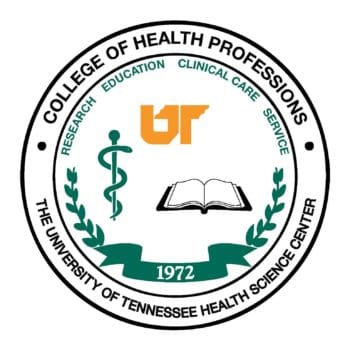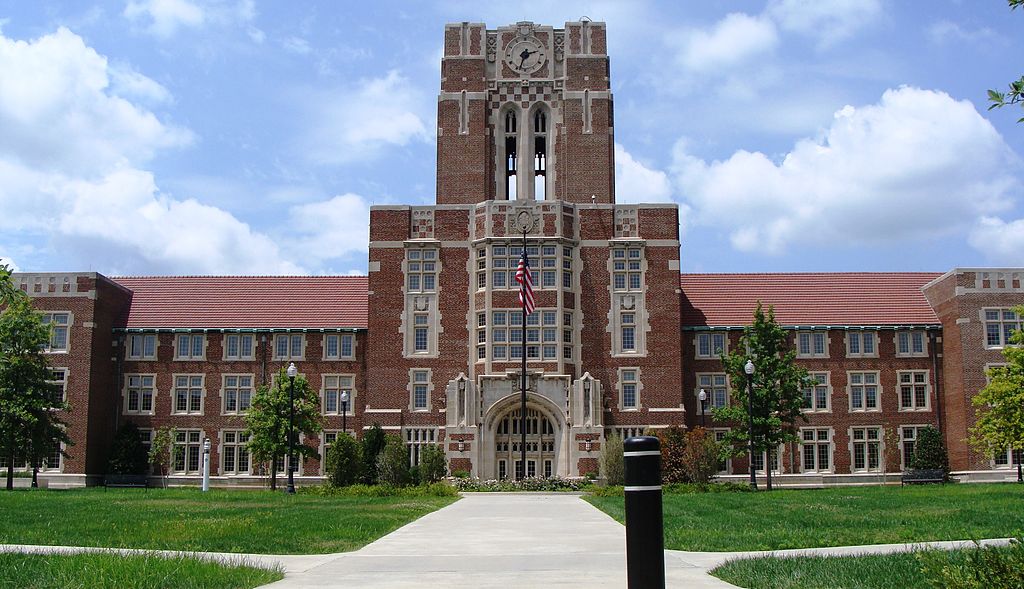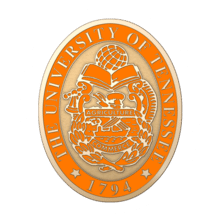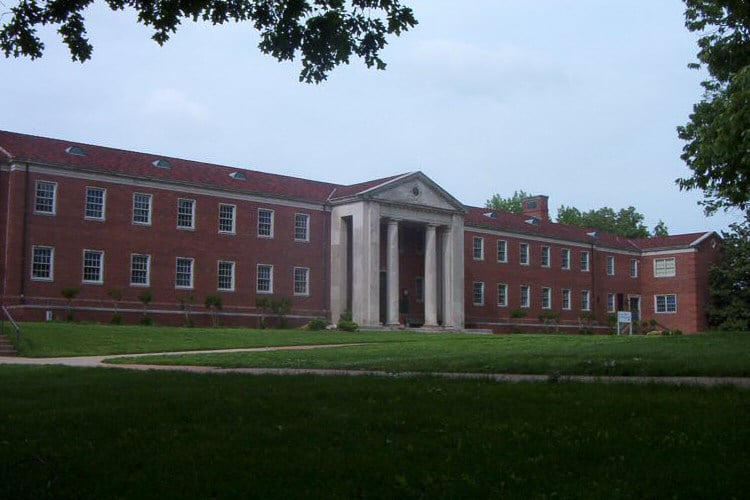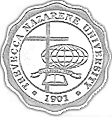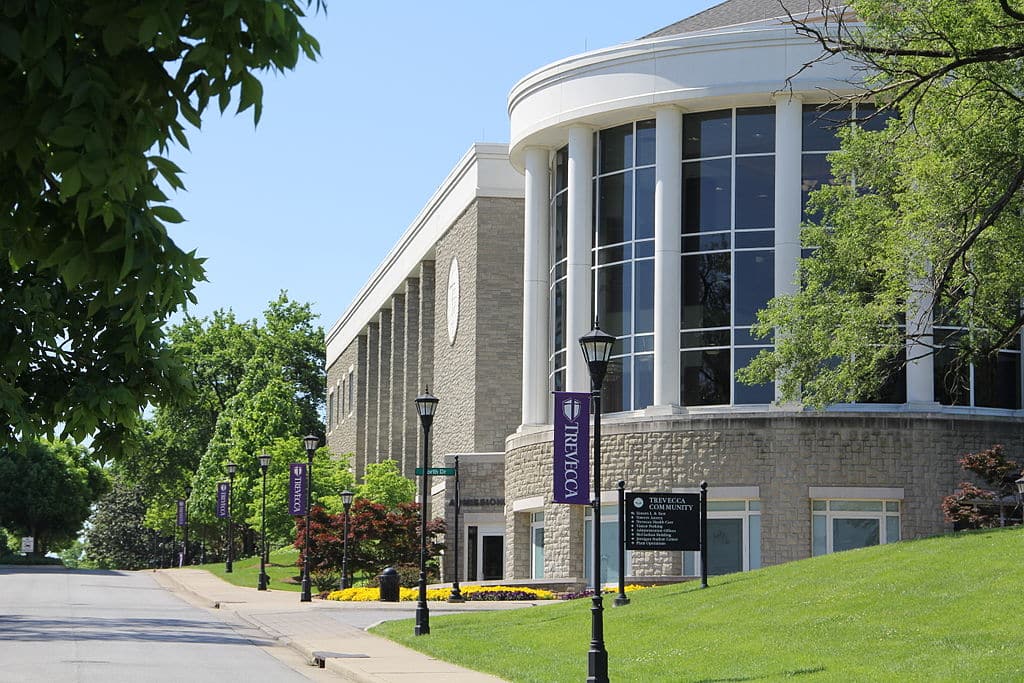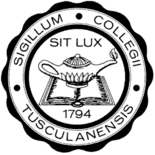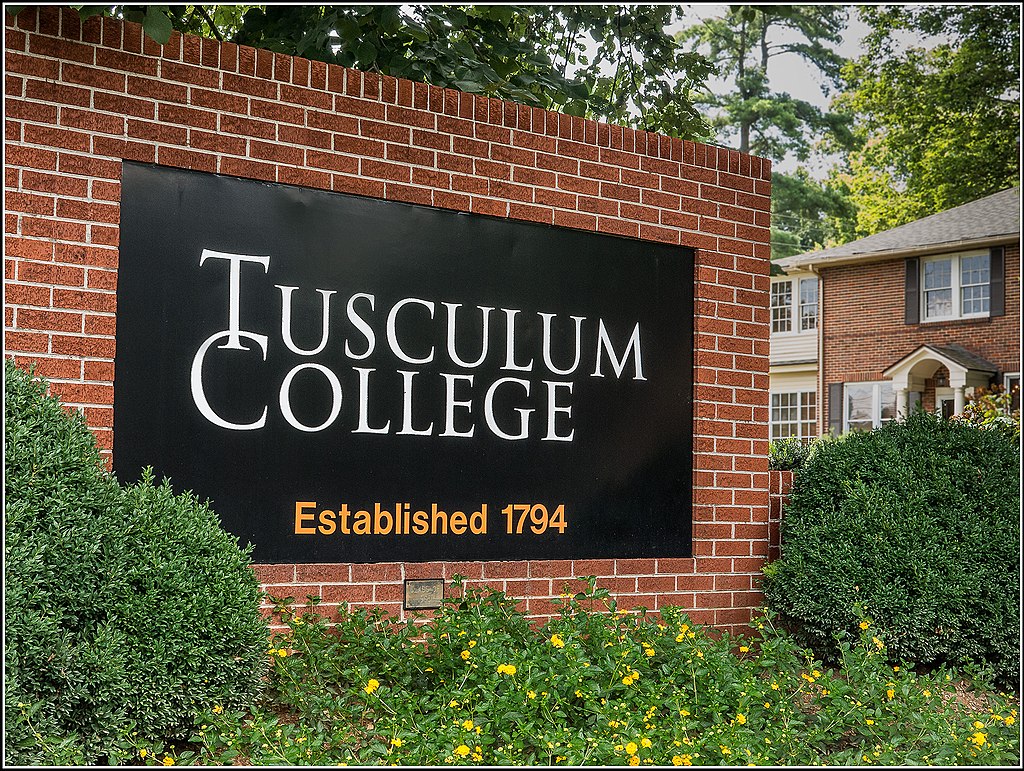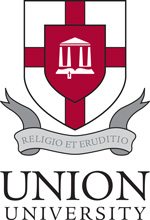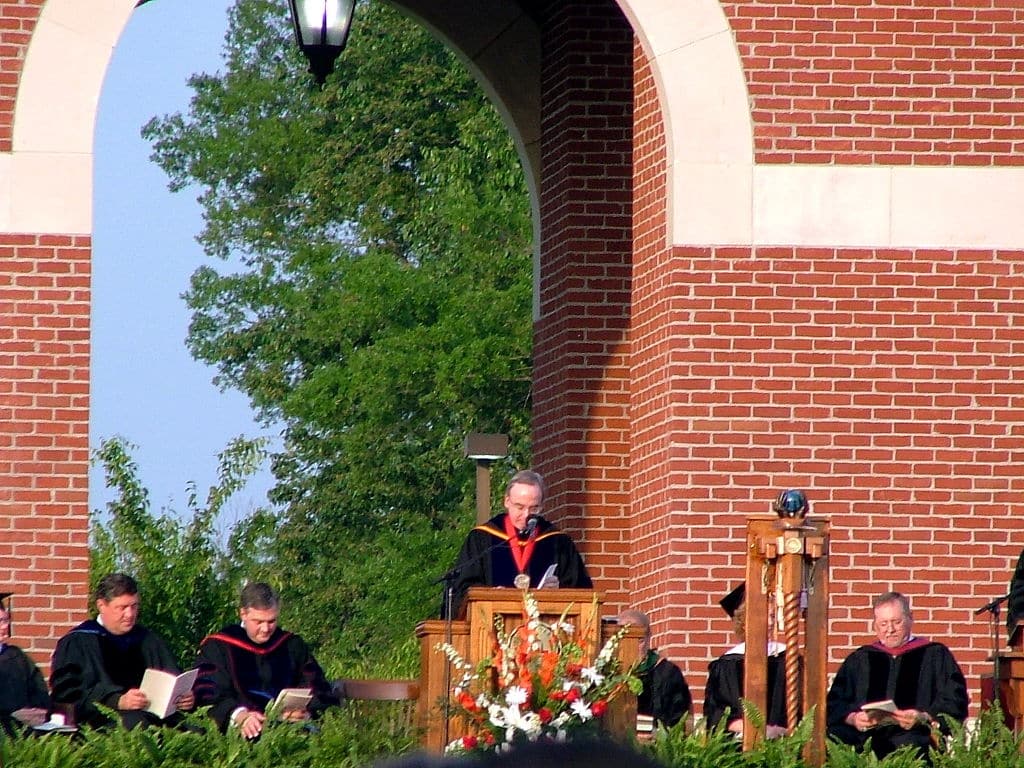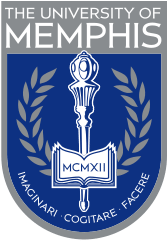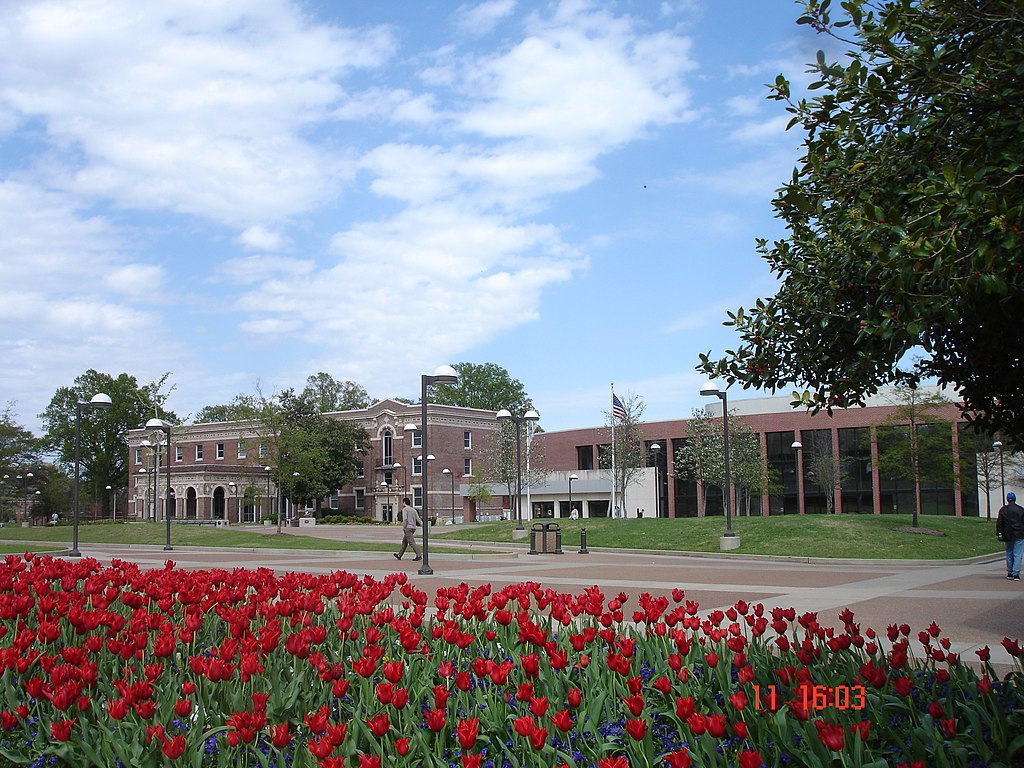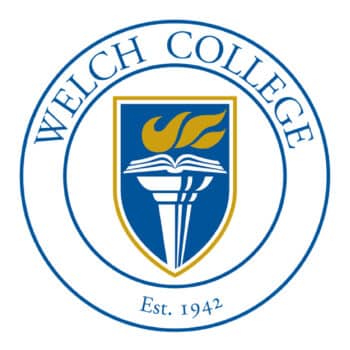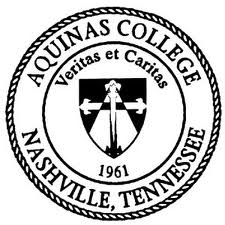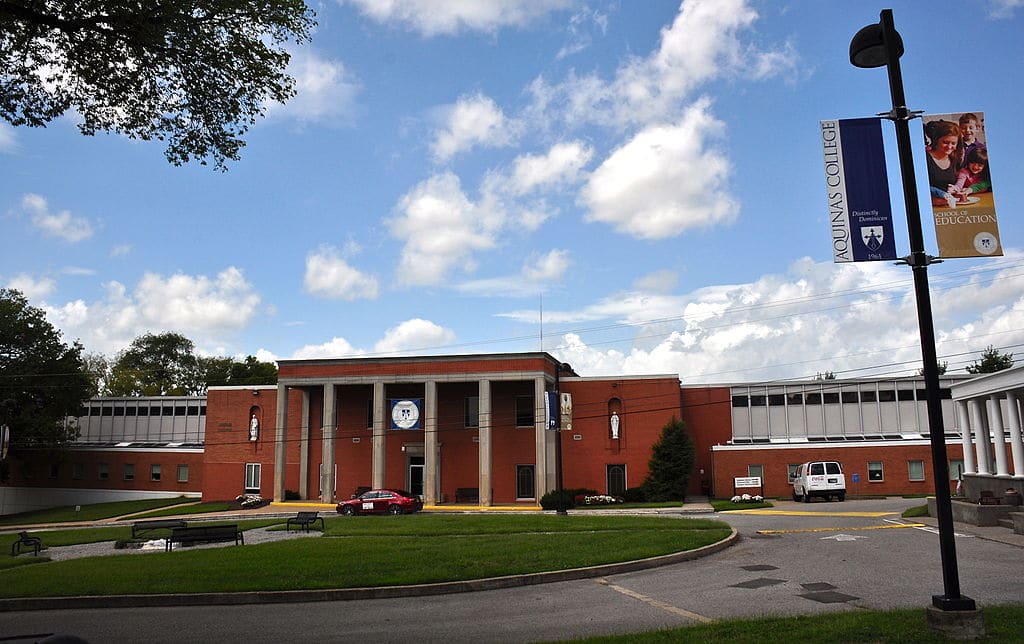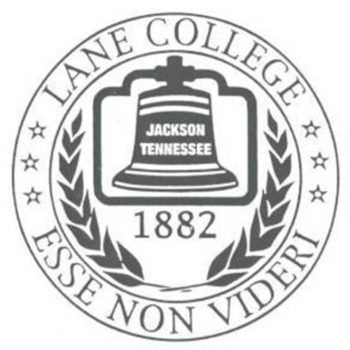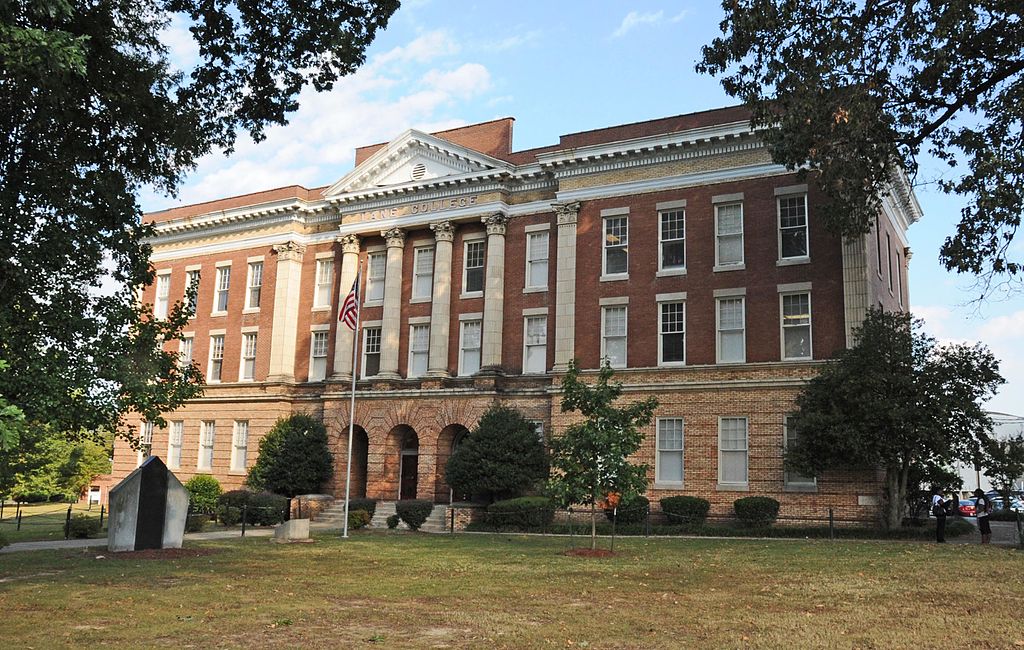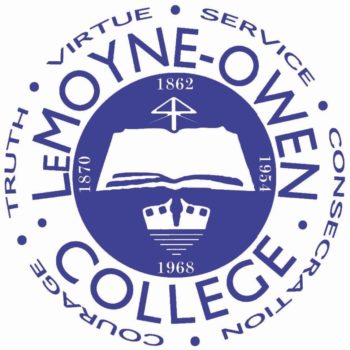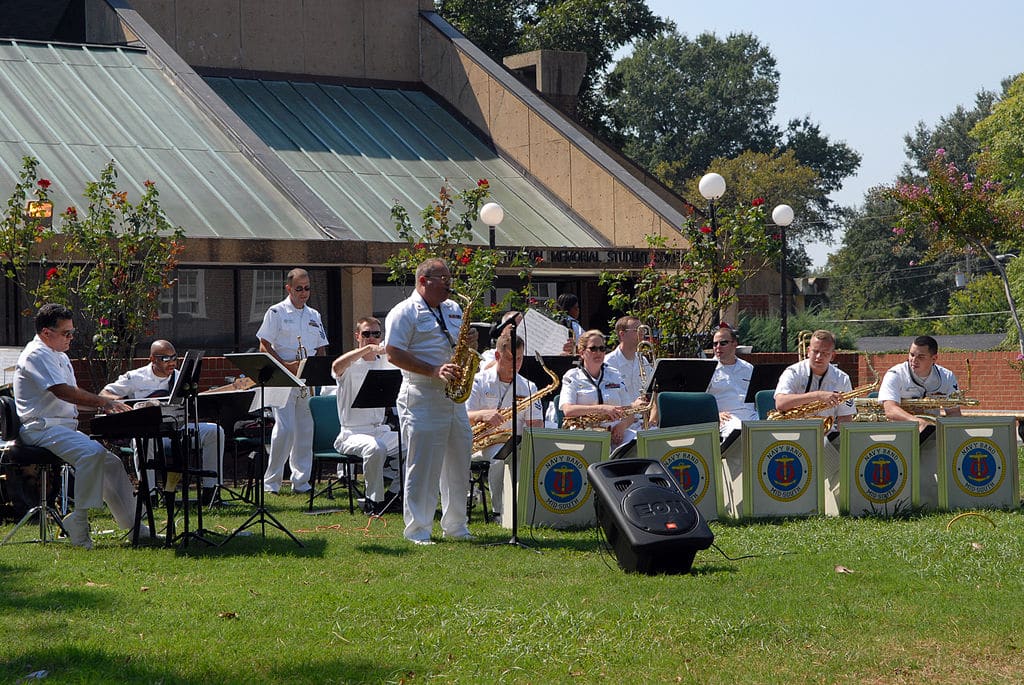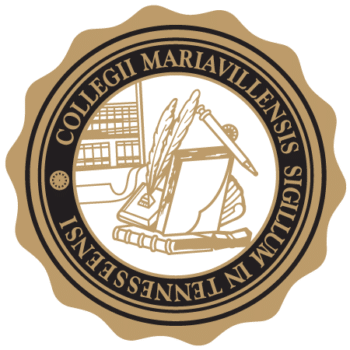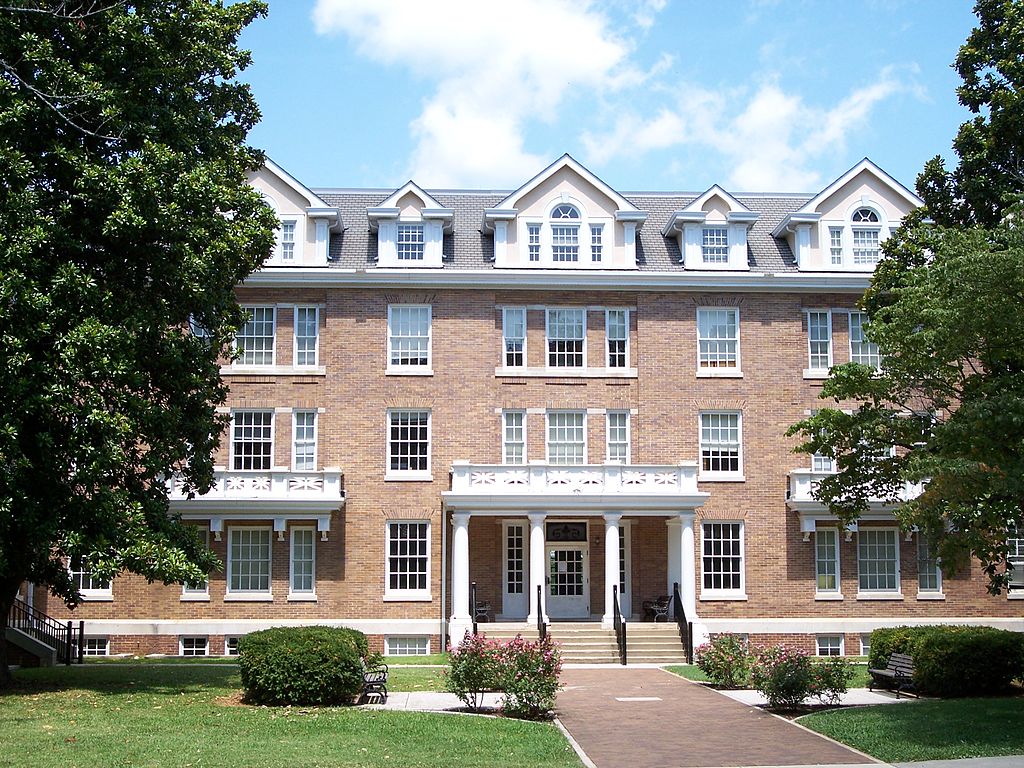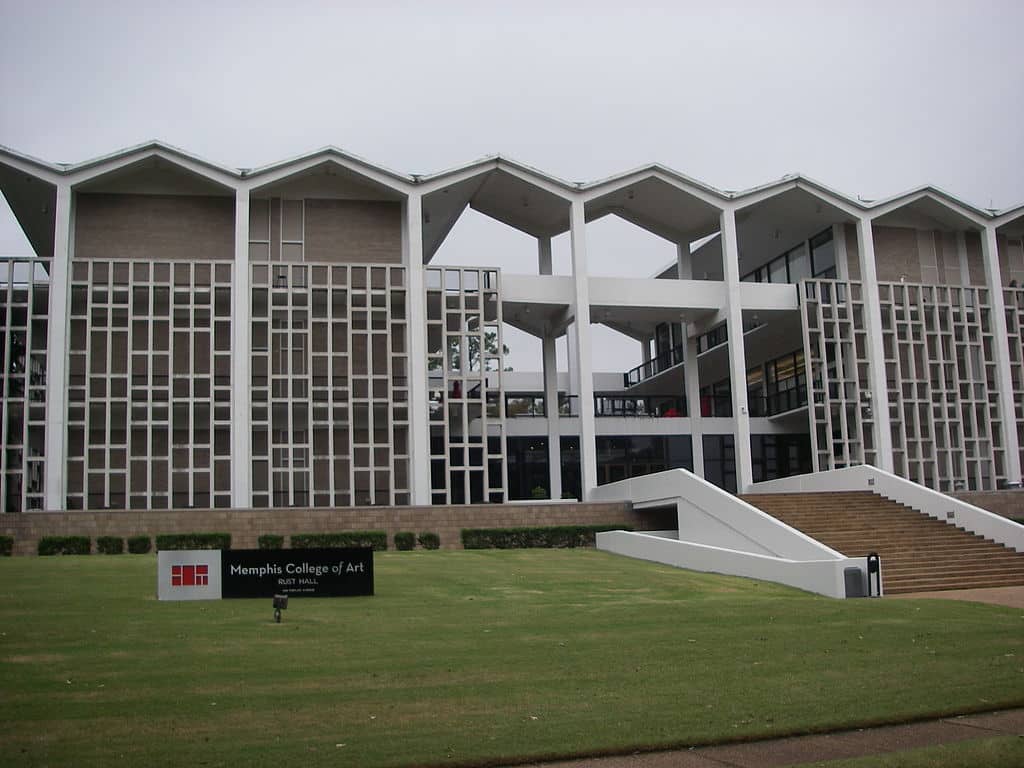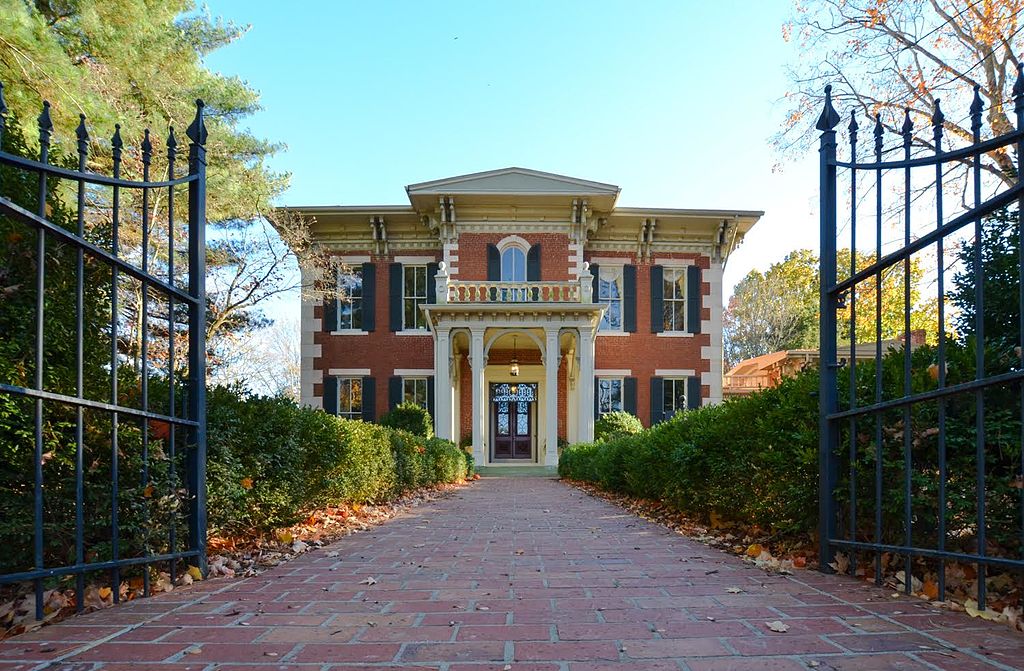Online Colleges in Tennessee
Compare all of the best distance education colleges located in Tennessee to pursue an online bachelors degree, associates, or online masters program degree. Including cost of tuition, degrees they offer, enrollment rates, faculty, famous alumni, and more.
Recommended Schools
-
American Baptist College
Nashville, Tennessee
- 157 Total Students
- 11 to 1 Student to Faculty Ratio
- Yes Online Programs
ABC eventually grew out of the desire to have Black Baptist ministers. As Dr. O.L. Hailey and leaders of National Baptist envisioned a seminary to train black ministers, a committee was soon set up to look into the possibility of a seminary. Within a couple of years, Nashville, Tennessee was chosen as the site for the seminary. The land was acquired in 1921 and development began. By 1924, the seminary had officially started its operations as American Baptist Theological Seminary. Presently the college is affiliated with National Baptist Convention, USA, Inc.
Recently inducted as a historically black institute, American Baptist College has always kept its traditions and values focused on serving the community. To better integrate the modern curriculum, the college stopped using ‘theological seminary’ as part of its name, however its dedication towards preparing for service and leadership remain the same.
ABC has the history of preparing social justice leaders throughout its 90+ year journey. Many of its students participated in Civil Rights and justice movements and some of the prominent ones to serve are Dr. Julius Scruggs, Congressman John Lewis and Dr. Bernard Lafayette. The famous Nashville Student Sit-In movement which was conducted for social justice and change is also one of the proud achievements. Many of the college students served as the leaders on the movement. With courage and patience during the most difficult times, the movement and its leaders altered the lives of many Americans. To this day, many of the social and campus activities at the college are embedded in the spirit of leadership. This includes Discovery Week and ABC Day, both of which involve community engagement and spiritual development based in leadership.
The academic offerings at the college Bachelors and Associate degrees; a total of six degree programs are offered. These range from Biblical Education to arts and music and entrepreneurial leadership. Although the college campus is small, there are some prominent facilities. These include three of its buildings T.L. Holcomb Chapel, Griggs Hall and J.B. Lawrence Administration Building which are listed under the National Register of Historic Places.
ABC School Facts
- Years Estd.1924
- MottoLight a Flame that lasts forever
- LocationTennessee
- Religious AffiliationBaptist
Famous ABC Alumni
-
R. E. Cooper, Sr.
Social Advocacy & Service
A Baptist Pastor; also a Civil Rights Leader
-
Julius R.Scruggs
Social Advocacy & Service
A Pastor, a Scholar and an author; also served as the President of National Baptist Convention USA Inc.
-
LeRoy Bailey Jr.
Social Advocacy & Service
Senior Pastor of The First Cathedral
-
Bernard Lafayette
Social Advocacy & Service
Most notably known as the leader in the 1960s Civil Rights Movement. Also the first director of the Peace Education Program at Gustavus Adolphus College
-
Forrest E. Harris Sr.
Education & Advocacy
Famous for being the Director of Kelly Miller Smith Institute on Black Church Studies at Vanderbilt Divinity School; a scholar and an author
-
C.T. Vivian
Social Advocacy & Service
A Minister and an activist; worked as the national deputy director for clergy for Jesse Jackson's presidential campaign
-
Austin Peay State University
Clarksville, Tennessee
- 10,099 Total Students
- 88% Acceptance Rate
- 49% Enrollment Rate
- 18 to 1 Student to Faculty Ratio
- 3,595 Total Applicants
- Yes Online Programs
Austin Peay started its journey when by the by Act of the General Assembly of 1927, it was established as teacher training as well as a two year junior college. It was named after the then Governor of Tennessee, Austin Peay serving his third term in office. The college was set up on the land which had for 180 years been in use by five different educational institutes. Over the years, resources and degree programs were added and it soon grew into progressing university. It is based in Clarksville, Tennessee.
The university, carrying on the legacy of the Austin Peay, a hardworking man with a vision for Tennessee, has always addressed the rising needs, contributing to the academic, social, political, economical as well as cultural mobility of its students as well as the larger community. It has expanded its reach through its campuses in Springfield, Tennessee and its center in Fort Campbell, Kentucky.
Student life at the university is fun and is filled with what it calls, ‘Governor Traditions’. Students play games and conduct physical activities such as The MudBowl, volleyball and tug of war game played in mud and Polar Plunge in which students jump into icy cold water as a sign of their resolve. Another tradition ‘Plant the Campus Red’ displays student concern for sustainability, where they plant flowers and plants at the campus. A unique tradition at Austin Peay is its most campus buildings continued to be named after former Tennessee governors. There is emphasis on arts and culture as well, it has publication for creative writings, and there are cultural centers and student organizations. It also recognizes its top students, through annual Spring Academic Awards Day Ceremony. The athletic teams at the university, called ‘Governors’ which participate at the Ohio Valley Conference (OVC). The campus colors are Red and White.
Academics at Austin Peay comprise of undergraduate and graduate programs. There are 56 major choices available. It also has Center of Excellence for the Creative Arts and the Center of Excellence for Field Biology. Its prestigious department is the Martha Dickerson Eriksson College of Education.
Austin Peay School Facts
- Years Estd.1927
- MascotGovernors
- MottoBe a Gov!
- ColorsRed and White
- LocationTennessee
- Religious AffiliationNot applicable
Famous Austin Peay Alumni
-
William J. Hadden
Social Advocacy & Service
A Protestant minister and also a politician
-
Douglas S. Jackson
Politics & Law
Former Tennessee State Senator, and an attorney
-
David Bibb
Politics & Law
Serving as Deputy Administrator, U.S. General Services Administration
-
Ronald Bailey, Major General
Politics & Law
Serving as United States Marine Corps Commanding General, 1st Marine Division; first African American to be serving
-
Chonda Pierce
Entertainment & Arts
Christian comedian and performer
-
Jeff Stec
Business & Industry
An entrepreneur who started 'Peak Fitness'
-
Bonnie Sloan
Professional Sports
Former NFL player; also the first deaf player in the NFL
-
Baptist College of Health Sciences
Memphis, Tennessee
- 1,079 Total Students
- 55% Acceptance Rate
- 38% Enrollment Rate
- 10 to 1 Student to Faculty Ratio
- 287 Total Applicants
- Yes Online Programs
A Private college, Baptist Memorial College of Health Sciences is an institute operating in the healthcare industry. It was founded in 1912 as the School of Nursing and with School of Radiologic Technology was established in 1956; these institutes soon expanded further and gave rise to the present institute of health sciences. The college operates in partnership with the Baptist Memorial College of Health Sciences and is based in Memphis, Tennessee.
The distinguishing aspect about the institute is that it is a Baptist college while serving in the specialized field of healthcare. The unique combination motivates the students and encourages them to hold their profession with commitment and carry their duties with dignity. It also encourages striving for excellence at all levels.
The campus life at the college is not complete without the campus ministry. There are programs which provide workshops, mission activities, fellowships and other activities and B.A.S.I.C., a student led group arranges Family Day, Concerts, Bible studies and more. There is also Inter-professional Health Care Case Study Challenge competition that is viewed with much enthusiasm. However that’s not all to the college. There are fun activities too, held at the campus. There is Octoberween, Spring Fling, Yuletide Euphoria and others. One such is the Stress-Free Zone which is takes place after the exams and lets students relax and unfurl after the exams. Student organizations and association are also very common at the campus. There are 11 such organizations that addressing different concerns and working for different issues. These include cultural club, community service, student service as well as those discussing and working against cancer.
The college offers undergraduate education with various major choices. There are in total 11 programs at the college which include biomedical sciences, medical radiography, nuclear medicine technology, respiratory care, general education and few others.
BCHS School Facts
- Years Estd.1912 (1912)
- LocationTennessee
- Religious AffiliationBaptist
-
Belmont University
Nashville, Tennessee
- 7,350 Total Students
- 80% Acceptance Rate
- 28% Enrollment Rate
- 14 to 1 Student to Faculty Ratio
- 6,145 Total Applicants
- Yes Online Programs
Belmont University originally started as Belmont College for Young Women by founders Susan L. Heron and Ida B. Hood in 1890. The site for the college was chosen by the two founders a year before in 1889 and falling in love with it, the two decided to go ahead. In its early years, the college went through a merger and with further academic and other achievements, the institute went on to become a four year education institute and finally progressed as a university in 1991. It is based in Nashville, Tennessee.
Today, it serves as a Private Liberal Arts institute extending its offerings beyond its region, nationally and internationally. With its foundations based in Christian teachings and with a professional stance on development of its students, Belmont has come to become the largest Christian university and second largest private university in its State.
With the only purpose of providing a transformational experience for its students, the university provides a set of complete activities for its students. Being a Christian university, it is not without its share of spirituality and religion. There are campus ministries which include Chapel as an important part of student life and also and collaborates with the local churches in the region. There are outreach missions as well for students to be actively involved in their communities. Besides this, there are also student organizations and activities which are aimed at engaging students beyond their classes and to step into leadership roles. These include arranging fun events such as movie nights and musical performances as well as running clubs and associations voicing student concerns. Belmont offers its own set of orientation activities which it refers to as ‘Towering Traditions’ which are aimed at better induction of each student into the campus life. It has its athletic teams participating at the NCAA Division I. Its mascot is ‘Bruiser the Bruin’ and its colors are Red and Blue.
The academic offerings at Belmont consist of both undergraduate and graduate programs. There are 90 program choices in undergraduate programs, 19 Master’s programs and five doctoral programs. Its prestigious departments are Jack C. Massey College of Business, Mike Curb College of Entertainment and Music Business and Gordon E. Inman College of Health Sciences & Nursing.
Belmont School Facts
- Years Estd.1890
- NicknameBruins
- MascotBruiser the Bruin
- Motto"From here to anywhere"
- ColorsRed and Blue
- LocationTennessee
- AthleticsNCAA Division I OVC
- Religious AffiliationInterdenominational
Famous Belmont Alumni
-
Damon T. Hininger
Business & Industry
Chief Executive Officer of the Corrections Corporation of America
-
Lila Acheson Wallace
Education & Advocacy
Co-founded Reader's Digest
-
Ginny Owens
Entertainment & Arts
Christian music artist
-
Clare Boothe Luce
Entertainment & Arts
Editor and playwright
-
Michael Jackman
Entertainment & Arts
Columnist, poet, essayist, fiction writer; also a college professor
-
Diane Black
Politics & Law
United States Representative from Tennessee
-
Didi Benami
Entertainment & Arts
American Idol finalist
-
Bethel University- Tennessee
McKenzie, Tennessee
- 5,951 Total Students
- 84% Acceptance Rate
- 65% Enrollment Rate
- 17 to 1 Student to Faculty Ratio
- 1,149 Total Applicants
- Yes Online Programs
One of the oldest institutes of higher education in Tennessee, Bethel began in Bethel Seminary, supported by the West Tennessee Synod in 1842. In 1847 it was granted charter by the State of Tennessee and operated as a college until 2009 when it was made into a university. When it started, the institute was all male, but by 1865 started admitting women. Presently, it is a Private Christian institute of higher education based in McKenzie, Tennessee and satellite campuses in Memphis, Nashville, Chattanooga, Jackson, Paris, and Clarksville.
In its more the 170 year journey, Bethel University has had exceptional leadership contributing greatly to the survival and progress of the institute. The first president Reuben Burrow also served as the fundraiser in its early years and Rev. Mr. B.W. McDonnald made efforts to raise funds to reopen the college having suffered greatly during the Civil War.
Being a Christian institute, Bethel has a thriving religious and spiritual life at the campus. It is mandatory for the students at the university to attend weekly chapels. There are many local churches that the university works with and encourages its students to also participate. Through this, the students not only connect with God and the idealistic values but also with each other concerning matters of faith. For a deeper understanding, it also presents Dobbins Lecture Series which focuses on religion and society. There are performances, musical and theatre by the students as form of their creative expression. There are also many student activities which are unique to the university helping students to be socially active and simply have fun. These are Ice Cream Socials, No Money Poker Tournaments, Old Time Photos, Karaoke Nights and others. It also has its athletic teams, ‘Wildcats’ which participate at the NAIA and the official colours are Purple and Vegas Gold.
Academic programs offered by the university are Associate, Bachelor’s and Master’s programs. In total there are more than 45 programs; some of which are also offered online. There are divided into three schools and colleges. Its prominent facilities include Ray and Linda Morris Science Complex.
Bethel School Facts
- LocationTennessee
- Religious AffiliationCumberland Presbyterian
-
Recommended Schools
-
Bryan College-Dayton
Dayton, Tennessee
- 1,489 Total Students
- 46% Acceptance Rate
- 52% Enrollment Rate
- 14 to 1 Student to Faculty Ratio
- 716 Total Applicants
- Yes Online Programs
A liberal arts college, Bryan was chartered as William Jennings Bryan University in 1930 however its story began when in 1925 William Jennings Bryan came to Dayton for Scopes Evolution Trial and spoke of his vision for a college. The same, followed by his death, a committee with 52 people was set up and the work began. The university was established and it adopted its present name in 1993.
The college started and continues to be an institute which dedicated to teaching students about a Christian worldview. It is non denominational, however and does encourage diversity. It is also not a place where students are imposed upon, rather the institute finds its guiding values in Christian belief and aims to bring modern education embedded in faith and spirituality.
Situated in Dayton, Tennessee, the campus life for students at Bryan College begins with firm foundation in faith. Students are presented with worship opportunities in chapel, with student enjoying Corporate Worship Chapel brought together by student musicians. There is also devotion and the Worldview Initiative, a partner organisation that lets students to be part of outreach worship and prayer programs in the eastern side of the country. There are on campus outreach programs as well such as volunteering opportunities with children, adults and other areas of concern in the community. There is also vocational internship through Acts Project which aims at providing a global and multicultural perspective. The college students also dedicate their one entire day in service of the community and people of Rhea County involving in all kinds of productive work for their communities.
Academics at Bryan include undergraduate programs with 25 majors in 49 different disciplines. There are also three graduate programs offered with five options and two certificates. One distinct facility at the college is Lions’ Den, a recreation area open for students as well as guests to enjoy their time while playing pool and ping pong games.
Bryan School Facts
- LocationTennessee
- Religious AffiliationInterdenominational
Famous Bryan Alumni
-
David C. Fisher
Social Advocacy & Service
Bible scholar and a pastor
-
Mastin M. Robeson
Politics & Law
Retired Major General, United States Marine Corps
-
Joseph Ledbetter
Business & Industry
Whiskey distiller, entrepreneur, and co-founder of the Chattanooga Whiskey Company
-
David Alward
Politics & Law
Canadian politician, Premier of New Brunswick
-
Robert Clouse
Education & Advocacy
Professor
-
Carson-Newman University
Jefferson City, Tennessee
- 2,528 Total Students
- 59% Acceptance Rate
- 14% Enrollment Rate
- 13 to 1 Student to Faculty Ratio
- 5,871 Total Applicants
- Yes Online Programs
A Private liberal arts university, C-N was established following the need for a higher education as well as a training institute. The charter for establishing the institute was applied for in 1850, and the institute started offering classes by the next year, 1851 which marks its founding year in which it received its charter. It was established as Mossy Creek Missionary Baptist Seminary. By 1889 it was among those few earliest who had turned coeducational.
It was in 2012 that with the approval of Board of trustees the college became Carson-Newman University. Based in Jefferson City, Tennessee, the university is a historically Baptist institute and so continues to be the institute that contributes both towards an individual’s education as well as transforming their lives as better citizens.
The student life at C-N is dominated in every way with opportunities to learn. Students connect with their religion and hop onto spiritual journeys through the campus ministry. Community Life and Worship Program bring together students, faculty and staff to worship and reflect on community engagement and be actively involved. There is Chaplaincy Program which promotes Christian centered learning, worshipping activities in different student led groups and many other events. Students can get themselves registered for text message alerts on Christian ministry events. Besides serious reflection, students also find many student led organizations (more than 70) that offer other activities, most prominent being Eagle Production Company (EPC) which organizes events such as Homecoming Parade, Concerts, Movie-on-the-Lawn’s, Spring Formal, and others. The Student Government Association also works actively to solve student concerns and issues. Athletics is also strong with the teams participating at NCAA Division II. The campus colors are Orange and Blue.
Academic programs at the university consist of undergraduate degree programs with more than 50 majors and 11 graduate programs. Its notable buildings are Ken Sparks Athletic Complex, Burke-Tarr Stadium, Sarah Swann Residence Hall, Baker Memorial Building, Henderson Humanities Building, Stephens-Burnett Library and others.
C-N School Facts
- Years Estd.1851
- NicknameEagles
- MottoTruth, Beauty, Goodness
- ColorsOrange & Blue
- LocationTennessee
- AthleticsNCAA Division II SAC
- Religious AffiliationBaptist
Famous C-N Alumni
-
Herbert S. Walters
Politics & Law
U.S. Senator from Tennessee, served from 1963 to 1964
-
Dana X. Bible
Professional Sports
Coach for American football, baseball and basketball and athletic administrator
-
Mary McDonald
Entertainment & Arts
Musician and composer
-
Ben W. Hooper
Politics & Law
28th Governor of Tennessee, served from 1911 to 1915
-
Helen Timmons Henderson
Education & Advocacy
An educator, also one of the first two women elected to the Virginia House of Delegates
-
Michael Eric Dyson
Education & Advocacy
Author; also Professor at Georgetown University
-
T. B. Maston
Education & Advocacy
Christian ethicist, writer, and professor
-
Garnett S. Stokes
Education & Advocacy
Interim President of Florida State University
-
Christian Brothers University
Memphis, Tennessee
- 1,842 Total Students
- 46% Acceptance Rate
- 28% Enrollment Rate
- 11 to 1 Student to Faculty Ratio
- 2,321 Total Applicants
- Yes Online Programs
CBU is a Private higher education institute that was founded by members of the Institute of the Brothers of Christian Schools in 1871. It was to be the international Roman Catholic religious teaching congregation and was named as Christian Brothers College. The college had difficulty in its early years but survived and as it moved into 20th century, it expanded academic programs to graduate degree programs and evening classes.
In 1990 it transitioned as Christian Brothers University and it is located in Memphis, Tennessee. The university finds its roots in Lasallian education. Besides being a centered on Christian values, it offers education and a journey which transforms students as individuals have spirit of creativity, intellect and also to serve their communities.
The university life for the students comes with a vibrant experience of outside classroom learning. Being a Christian university, spiritual and religious life is at the center and the campus ministry organizes weekly Mass and Chapel, worship activities and volunteer mission programs across the country. Further student activities involve social and personal development through participation in student clubs and organisations. There are over 40 student clubs and organizations including fraternities and sororities. There are also opportunities for leadership development through classes or being part of the student government and taking on student welfare responsibility. Newly introduced Living Learning Center brings students who have similar interests or studies, together in a closer living environment. Athletics is also an important part; teams Buccaneers & Lady Buccaneers are part of NCAA Division II. Another significant part of student life is sustainability which works for preservation of natural environment through CBU Green which environmental friendly facilities. There is also an electric vehicle charging station. Campus colors are Red and Gray.
Academic offerings at CBU are Bachelors degree programs with over60 majors and concentrations. Also there are seven graduate programs including six Masters Degree programs. Its prestigious departments and facilities are The Rosa Deal School of Arts, Gadomski School of Engineering, Cooper-Wilson Center for Life Sciences, Plough Library, Rozier Hall, Stritch Hall, Maurelian Hall and few others.
CBU School Facts
- Years Estd.1871
- NicknameBuccaneers & Lady Buccaneers
- MascotBucky the Buccaneer
- MottoVirtus et Scientia
- Motto Eng.Character and Knowledge
- ColorsRed and Gray
- LocationTennessee
- AthleticsNCAA Division II Gulf South
- Religious AffiliationRoman Catholic
Famous CBU Alumni
-
Malcolm R. Patterson
Politics & Law
Governor of Tennessee from 1907 to 1911
-
Cumberland University
Lebanon, Tennessee
- 1,550 Total Students
- 49% Acceptance Rate
- 59% Enrollment Rate
- 16 to 1 Student to Faculty Ratio
- 695 Total Applicants
- Yes Online Programs
Cumberland is a private university that was founded in the year 1842 by the Cumberland Presbyterian Church. In a year, the institute had also received its charter the State of Tennessee. Within a few years the university also added a law school (1847) the first in Tennessee and the first west of the Appalachian Mountains and school of theology (1854). The institute also went through some difficulties however soon recovered after it was made into a private four year liberal arts institute.
It is based in Lebanon, Tennessee, and is now operated under a Board of Trustees. Realising the importance of a liberal arts education, the university has excelled in providing high quality academics, empowering its students for a lifetime of personal and professional success.
At Cumberland University, students experience a vibrant atmosphere engaging students in a plenty of activities. Foremost there are more than 45 students club and organisations, ranging from honor societies, to athletics and sports to academics and performing arts groups. These serve as platforms to meeting new people and pursuing extracurricular activities around campus. There is also Greek Life consisting of six recognized chapters. Students further find representation and student voice on the campus through Student Government Association (SGA). This serves as the chance for students to run office, learn and further polish their leadership skills while also be actively involved in planning and organising events, bringing ideas and activities to campus and improving student life, overall. Performing arts is also a great activity and students actively take part in organising and performing at concerts and theatrical productions. There are also university athletic teams called ‘Phoenix’ and which take part at NAIA. The campus colors are Maroon and White.
The academic program offerings include six Associate Degree programs, 29 Bachelors degree programs with 39 majors, and eight Masters Degree programs. The prestigious facilities are Doris & Harry Vise University Library, Rudy School of Nursing and Health Professions, Labry School of Science, Technology, and Business, Howell E. Jackson & Horace H. Lurton Halls, Justin Potter Hall and few more.
Cumberland School Facts
- Years Estd.1842
- NicknamePhoenix
- ColorsMaroon and White
- LocationTennessee
- AthleticsNAIA Mid-South
- Religious AffiliationNot applicable
Famous Cumberland Alumni
-
George Huddleston
Politics & Law
U.S. Representative from Alabama from 1915 to 1937
-
Robert M. Rainey
Politics & Law
Judge and member of Oklahoma State Supreme Court
-
Frank G. Clement
Politics & Law
Governor of Tennessee from 1954 to 1959 and from 1963 to 1967
-
Theodore M. Brantley
Politics & Law
Chief Justice of the Montana Supreme Court, having served for longest period for 23 years from 1899 to 1922
-
Howell Edmunds Jackson
Politics & Law
Associate Justice of the United States Supreme Court, from 1893 to 1895
-
Cordell Hull
Politics & Law
Secretary of State under President Franklin Delano Roosevelt from 1933 to 1944
-
John T. Watkins
Politics & Law
U.S. Representative for Louisiana's 4th congressional district from 1905 to 1921
-
East Tennessee State University
Johnson City, Tennessee
- 14,334 Total Students
- 79% Acceptance Rate
- 31% Enrollment Rate
- 17 to 1 Student to Faculty Ratio
- 8,253 Total Applicants
- Yes Online Programs
ETSU is a public higher education institute that was founded as East Tennessee State Normal School in 1911. It was initially set up for educating and training individuals into professional teachers. With dedication towards its goals, it formally became a college in 1925. It was in 1943 that the state college decided to offer expanded academic curriculum and became East Tennessee State College.
By 1963, the college gained university status and hence its present name. It is based in Johnson City, Tennessee and is dedicated to its original mission of promoting learning, creativity and personal development through its liberal arts education, which leads to committed and strong individuals.
At East Tennessee State University students find a lot to be involved in, from leadership activities to proving their skill set to learning new ones. The primary student organisation is the Student Government Association, voicing student grievances and providing students the chance to lead office and gain real world experience. There is SORC – Student Organisation Resource Center which works to increase student involvement through activities and programs; from arts, to community volunteerism to women empowerment, the SORC is home to all. Many other activities are arranged on the campus bringing life and entertainment for students to enjoy some time off studies as well as take up on causes such as movies, theatre events, pridewalk, relay for life and more. There are also other student led organisations, more than 200 including Greek Life, recreation, cultural, religious etc, that provides learning and socialising opportunities. Students also take active participation at athletic events, with the university teams competing at NCAA Division II. The Campus colors are Navy blue and Gold and its mascot is the ‘Bucky’.
The academic programs at the college consist of 140 programs which include undergraduate, graduate, doctoral degree programs and honors programs. Its prominent departments and facilities are James H. Quillen College of Medicine, Claudius G. Clemmer College of Education, Bill Gatton College of Pharmacy, Charles C. Sherrod Library, Warren-Greene Golf Center , Wayne G. Basler Center for Physical Activity and more.
ETSU School Facts
- Years Estd.October 2, 1911 (1911-10-02)
- NicknameBuccaneers
- MascotBucky
- MottoGraduation Begins Today
- ColorsNavy blue and Gold
- LocationTennessee
- AthleticsNCAA Division I, SoCon15 varsity teams
- Religious AffiliationNot applicable
Famous ETSU Alumni
-
Jo Carson
Entertainment & Arts
American playwright, poet and fiction writer
-
Kenny Chesney
Entertainment & Arts
Four-time Country Music Association Entertainer of the Year
-
Earl Gladstone Hunt, Jr.
Social Advocacy & Service
American evangelist and former president of Emory and Henry College from 1956 to 1964
-
Jamey Chadwell
Professional Sports
Head football coach Charleston Southern University from 2013 to present
-
Bobby Wadkins
Professional Sports
PGA Tour golfer from 1973 to 2011
-
Ron Ramsey
Business & Industry
Lieutenant Governor of Tennessee from 2007 to present
-
Fisk University
Nashville, Tennessee
- 855 Total Students
- 81% Acceptance Rate
- 9% Enrollment Rate
- 13 to 1 Student to Faculty Ratio
- 3,004 Total Applicants
- Yes Online Programs
Fisk University is a private historically black university that was founded after the civil war in Nashville, Tennessee. The university was established in 1866 by John Ogden, Erastus Cravath and Edward Smith who were leaders of the American Missionary Association aiming at the education of Freedmen. In the first months after inauguration, the number of enrolled students increased massively from 200 to 900, covering a very wide range of age from less than 10 years to more than 60 years indicating the strong motivation of freedmen to learn. The university was named after Clinton B. Fisk who provided an unused barrack to the university in addition to total donations of 30,000 $.
The university mission emphasizes on several values represented by the letters D.E.T.A.I.L.S. which stands for diversity, excellence, teamwork, accountability, integrity, leadership and service.
The 40-acre university campus is built mainly using the Italian, Queen Anne architectural style. It includes several distinctive historical buildings including Jubilee hall, theological hall and Fisk memorial chapel. Jubilee hall is the first permanent building for the university which was completed 10 years after the establishment of the university. The hall has a floor to ceiling portrait of the original Jubilee singers who made a European signing tour in 1873 to raise funds for the construction process. The hall was registered in 1974 as a national historic landmark. The campus also includes Carl Van Vechten museum which contains several music, art and literature collections. Fisk University colors are gold and blue with its mascot being the bulldog.
Fisk University has a record in graduating African American who continued their PhD studies after that. The university has two different schools offers six undergraduate programs in addition to graduate and pre-professional programs. Moreover, Fisk offers joint programs with Vanderbilt University, Rush Medical Center and Howard University. Fisk-Vanderbilt Bridge program is the most prominent of them allowing underrepresented students to complete their PhD degree in STEM studies. This program has gained financial support from distinctive institutes including NASA and the National Science Foundation.
Fisk School Facts
- Years Estd.1866
- NicknameBulldogs
- MascotThe Fisk Bulldog
- MottoHer sons and daughters are ever on the altar
- ColorsGold and Blue
- LocationTennessee
- AthleticsNAIA independent(previously GCAC)
- Religious AffiliationNot applicable
Famous Fisk Alumni
-
Lil Hardin Armstrong
Entertainment & Arts
jazz composer and pianist, She is also the wife of the known musician Louis Armstrong
-
Marion Barry
Politics & Law
former mayor of Washington D.C.
-
Otis Boykin
Science & Medicine
Inventor of the control device for heart pace maker
-
St. Elmo Brady
Science & Medicine
the first African American to complete PhD degree in Chemistry
-
Cora Brown
Politics & Law
first African American woman to be elected as the State Senate.
-
William L. Dawson
Politics & Law
US. Congressman
-
James J. Durham
Education & Advocacy
founder of Morris College
-
Ben Jobe
Professional Sports
famous basketball coach
-
Fountainhead College of Technology
Knoxville, Tennessee
- 94 Total Students
- 10 to 1 Student to Faculty Ratio
- Yes Online Programs
Fountainhead College (FC), also known as Fountainhead, is a technology based educational institute that is located in Fountain City, Tennessee, United States. It was established in Knoxville, Tennessee in 1947 as the Tennessee Radio Service School. A year later in 1948, its name was changed into Tennessee Institute of Electronics. Its prime role was to graduate well-educated electronics technicians in the field of radio and television communications to be ready for the entry standard appointments in the industrial field. Tennessee Institute of Electronics continued growing and its academic programs greatly expanded overtime. For instance, it started to offer an Associate’s Degree in Information Technology, whose program was designed to include information security training in 1999. Also, a Baccalaureate degree in Network Security and Forensics was developed in 2002. Due to the previously mentioned programs expansion, Tennessee Institute of Electronics was able to change its name once again to be Fountainhead College of Technology in May 2003. Eventually in 2003, FC was the first college in southeastern region to inaugurate a baccalaureate degree in the field of computer security degree. This qualified the college to be the leading technology based educational institute in East Tennessee and to provide the community with various technology based training programs.
The College mission is to prepare well-trained graduates supported by high level of technology-related education, favorable tendency and appropriate motifs for the industry market.
Fountainhead is the sole college in the United State that offers all the six certificates offered by National Center of Academic Excellence in Information Assurance Education (CAEIAE). Fountain offers 3 bachelor degrees and 5 associate degrees. In addition it offers an online distant learning system through which it offers 2 bachelor degrees and 3 associate degrees. The Forensics bachelor’s degree program is considered to be one the best in the US in that area of study.
FCT School Facts
- LocationTennessee
- Religious AffiliationNot applicable
-
Freed-Hardeman University
Henderson, Tennessee
- 1,828 Total Students
- 92% Acceptance Rate
- 33% Enrollment Rate
- 13 to 1 Student to Faculty Ratio
- 981 Total Applicants
- Yes Online Programs
Freed-Hardeman University (FHU) was established in Henderson, Tennessee by the Churches of Christ. It is administered by a board of trustees who must all be members of the Churches of Christ. In 1907, Georgia Robertson Christian College was closed resulting in educational void which motivated A. G. Freed to establish a new institute in collaboration with Georgia Robertson college alumni. The institute was established under the name of National Teachers’ Normal and Business school. It was renamed Freed-Hardeman College in honor of its founders. Seventy years later, it was acknowledged as Freed-Hardeman University.
FHU is a residential university with a majority of full time students and some adult part-time students. The campus covers 96 acres with several distinctive buildings including student center which opened in 1966 including the Wallance-Gano dining hall which is the main cafeteria for the university. Other distinctive buildings include Clayton Chapel, the Brown-Kopel Business center, the Bulliner-Clayton Visual Arts Center, the Anderson Center, Loyd Auditorium and the Brewer’s Sports Center. A new library is currently being built and is named in honor of Hope Shull.
Students at FHU have to attend a daily chapel service and they should take at least one bible class per semester. There are several other religious activities held regularly on campus, for example, biweekly campus-wide devotionals and weekly Clayton Chapel singing. The university athletic teams are nicknamed the lions who compete in the American Midwest Conference.
The university is divided into 4 different colleges in addition to Honors College offering more than 40 academic programs. The university offers to the students the option to study a semester abroad in their facilities in Belgium, Spain, Canada and Costa Rica. FHU was ranked 35th by US News & World report in 2013 among Southern Universities granting master’s degree and it was ranked 13th by the same report according to affordability.
FHU School Facts
- Years Estd.1869
- NicknameLions
- MottoTeaching How to Live and How to Make a Living
- LocationTennessee
- Religious AffiliationChurches of Christ
Famous FHU Alumni
-
Carl Bell
Education & Advocacy
Songwriter for the band Fuel
-
T. Jeff Busby
Politics & Law
Democratic congressman
-
Kerby Farrell
Professional Sports
Former MLB player for Boston Braves
-
Dianne Odell
Social Advocacy & Service
Survived 60 years using iron lung
-
Sue Shelton White
Social Advocacy & Service
feminist leader and suffragist lawyer
-
Hiwassee College
Madisonville, Tennessee
- 280 Total Students
- 59% Acceptance Rate
- 37% Enrollment Rate
- 12 to 1 Student to Faculty Ratio
- 418 Total Applicants
- Yes Online Programs
Hiwassee College is a private liberal arts higher education institute. The college was founded in close link to Tullagalla academy which was established in 1826. Enrollment of students at the college exceeded its capacity so it moved to the facilities of neighboring camp called Bat Creek Campground. After the academy left the camp in 1848; the Hiwassee College was established in the camp by five local Methodist leaders. The college got its charter in 1850 from the State of Tennessee. In 1908, the college had an agreement with the Holston Conference of the Methodist Episcopal Church-South for joint administration of the college. Hiwassee offered master’s degree to students for a while but now it offers two and four-year undergraduate programs only. Until 1980, the college was governed by a unified board of trustees with the two other colleges in the United Methodist-related colleges in the Holston Conference. At this year, the board of trustees decided to found an independent board of governors for each one of them. Ten years later, the three colleges became independent with a separate board of trustees for each one.
The college states its mission is to provide high quality education to students promoting faith, learning and service.
Hiwassee campus covered only 7 acres upon its establishment. The campus grew gradually to 400 acres with around 60 acres built area containing 18 buildings as Allison Hall which was constructed in 1965, Barker Learning Center, Brock Hall, Brunner Hall, Buckner Memorial United Methodist Chapel, Hardwick-Johnston Memorial Library, Laycock Alumni Center, Lundy Science Hall, Rymer Student Life Center and the “Rudy” Youell Physical Education Center.
The college offers undergraduate programs in 7 majors granting bachelor and associate degrees. Hiwassee does not offer graduate programs however; it provides a list to its students with graduate school opportunities. The college has an Academic Success Center that supports the students throughout their studies. Students may benefit from Academic or Athletic scholarships that provide financial support.
Hiwassee School Facts
- Years Estd.1849
- Motto Eng.Founded in Faith. Forged in Excellence
- LocationTennessee
- Religious AffiliationUnited Methodist
Famous Hiwassee Alumni
-
Antonio Burks
Professional Sports
professional NBA basketball player
-
Isaac Cline
Science & Medicine
founder of the US Weather Bureau
-
Alexander Stephens Clay
Politics & Law
former Georgia senator
-
Albert H. Roberts
Politics & Law
former governor of Tennessee
-
Orlando Lightfoot
Professional Sports
former professional basketball player
-
Johnson University
Knoxville, Tennessee
- 1,171 Total Students
- 57% Acceptance Rate
- 73% Enrollment Rate
- 14 to 1 Student to Faculty Ratio
- 417 Total Applicants
- Yes Online Programs
Johnson University is a Christian co-educational institute located in Kimberlin Heights, Tennessee. The original campus of Johnson is the Tennessee campus, which forms the University System. This system comprises the chief campuses in Knoxville, Tennessee in addition to another campus in Florida, and the online campus. The university was established in 1893 by Ashley S. Johnson and the Christian Church as The School of the Evangelists. The name of the school was changed into Johnson Bible College in 1909 in honor of Dr. Ashley Johnson. He assisted the school up until his death in 1925. Passing away, his wife Emma Johnson became the college president and served the university to the last day in her life in 1927. Johnson has a great value being the second oldest remaining Bible college in the United States and the first Bible college associated with the Christian churches and churches of Christ. It has achieved the university status in 2011.
The University campus offers several distinctive buildings and facilities including The White House which was the former home of Dr. and Mrs. Johnson, Old Main Building, Clark Hall, Myrtle Hall, Bell Hall, Glass Memorial Library, Phillips−Welshimer Building, Eubanks Activity Center, Johnson Hall, Brown Hall, Richardson Hall and Gally Commons. The official campus colors are Blue & White, while the mascot of Johnson is Royals.
Johnson University is authorized by the Southern Association of Colleges and Schools Commission on Colleges to grant associate’s, bachelor’s, master’s, and doctoral degrees. Some of its programs are accredited by the Association for Biblical Higher Education. It introduces more than 50 bachelor’s, master’s, Ph.D., associate’s and certificate programs.
Johnson School Facts
- Years Estd.1893
- MascotRoyals
- MottoOpen day and night to the poor young man who desires above every other desire, to preach the Gospel of Christ.
- ColorsBlue & White
- LocationTennessee
- Religious AffiliationChristian Churches and Churches of Christ
Famous Johnson Alumni
-
Grover Cleveland Brewer
Education & Advocacy
former minister in the Churches of Christ
-
Fred Craddock
Education & Advocacy
former minister in the Disciples of Christ and Emory University, scholar of homiletics
-
Oren E. Long
Politics & Law
he was the first Democrat to represent Hawaii in the United States Senate
-
King University
Bristol, Tennessee
- 2,920 Total Students
- 44% Acceptance Rate
- 38% Enrollment Rate
- 16 to 1 Student to Faculty Ratio
- 843 Total Applicants
- Yes Online Programs
King University is a private Christian higher education institute located in Bristol, Tennessee. It was established in 1866 by a decision of the Holston Presbytery assembly at the old Pleasant Grove Church. It was named King College in honor of Reverend James King who donated 25 acres for the establishment of the college. Classes started in the following year. In 1917, the college moved to the current campus as the number of the students grew beyond the capacity of the original campus. The land of the new location was donated by King’s grandson Isaac Anderson. In 1998, the college declared King’s plan to expand into a university which was achieved 15 years later.
The university current main campus is located close to downtown covering 135 acres with several distinctive buildings as Bristol Hall, Burke Observatory, E. W. King Building, Hyde Hall, Kline Gym, Liston Hall, Maclellan Hall, Memorial Chapel, Mitchel Hall, Parks Hall, Tadlock-Wallace Hall, Sells Hall and Snider Honors House. Moreover, the university operates three branch campuses in Kingsport, Knoxville, and Nashville. King students have access to three libraries; E.W. King Library located in the main campus, Kingsport Information Resource Center and Knoxville Learning Center. The university has 10 additional off-campus locations across Southwest Virginia and Tennessee. The official colors for the university are navy and gold while its official mascot is called Twister the Lion. The university athletic teams compete in the NCAA-Division II and Conference Carolinas.
King adopts small university model divided into 7 schools including Peeke School of Christian Mission. It offers undergraduate programs in more than 80 majors and minors in addition to pre-professional programs. The university curriculum has undergone major revision in 2009. All enrolled students travel to Washington DC during the first academic year through Experience DC program. The university is accredited by the Southern Association of Colleges and Schools.
King School Facts
- Years Estd.1867
- NicknameThe Tornado
- MascotTwister the Lion
- MottoEcclesiae et Litteris (For the Church and For Learning)
- ColorsNavy and Red
- LocationTennessee
- Religious AffiliationPresbyterian Church (USA)
Famous King Alumni
-
Christian H. Cooper
Politics & Law
member of the Council on Foreign Relations
-
Katherine Paterson
Entertainment & Arts
author of Bridge to Terabithia
-
William R. Laird, III
Politics & Law
former US senator
-
Patricia Cornwell
Entertainment & Arts
bestselling author
-
Chad Keen
Politics & Law
Mayor of Bristol, Tennessee
-
Lee University
Cleveland, Tennessee
- 5,041 Total Students
- 85% Acceptance Rate
- 46% Enrollment Rate
- 17 to 1 Student to Faculty Ratio
- 2,141 Total Applicants
- Yes Online Programs
Lee University is a private higher education institute located in Cleveland, Tennessee. It was established in 1918 under the name of the Church of God Bible Training School. It was initially a small institute with 12 students and only 1 teacher. Thirty years later, the college grew to become a bible junior college when it moved to its current location. In 1968, the university got its accreditation as a four year college. It was renamed to Lee University in honor of its second president; F.J. Lee.
The university states its mission is to integrate truth provided by the bible with truth discovered through the study of arts and science. Lee campus currently covers 120 acres with several distinctive buildings as Leonard Center, McKenzie Athletic Building, Paul Conn Student Union, Helen DeVos College of Education, Deacon Jones Dining Hall, Curtsinger Music Building, DeVos Recreation Center, Dixon Center and Watkins Building. There are also several residence halls as Atkins-Ellis Hall, B.L. Hicks Hall, Bowdle-O’Bannon Hall, Brinsfield Row East and West, Carroll Court, Cross Hall, Sharp-Davis Hall and Keeble Hall. The official colors of the campus are burgundy & navy blue while its mascot is called Flames. Its athletic teams compete in the National Collegiate Athletic Association Division II.
The university is divided into 5 colleges and schools including the Helen DeVos College of Education. It also offers graduate programs as well as online and adult programs. The university is accredited by the Commission on Colleges of the Southern Association of Colleges and Schools. It has consistently been ranked by the US News and World Report as a Top Tier institute. It was also ranked by the Princeton Review among best colleges in the Southeast.
Lee School Facts
- Years Estd.1918
- MascotFlames
- Motto"Where Christ is King"
- ColorsBurgundy & Navy blue
- LocationTennessee
- AthleticsNCAA Division II Gulf South
- Religious AffiliationChurch of God
Famous Lee Alumni
-
Nathan Chapman
Entertainment & Arts
Grammy award-winning record producer
-
Jordan Wayne Lee
Entertainment & Arts
Emmy Award Winning Art Director & Designer
-
Jordan Smith
Entertainment & Arts
Winner of season 9 of The Voice
-
Ricardo Pierre-Louis
Professional Sports
former MLS Soccer player
-
Ben Lobb
Politics & Law
Conservative Member of the Canadian Parliament
-
Lincoln Memorial University
Harrogate, Tennessee
- 3,983 Total Students
- 74% Acceptance Rate
- 17% Enrollment Rate
- 13 to 1 Student to Faculty Ratio
- 2,306 Total Applicants
- Yes Online Programs
Lincoln Memorial University (LMU) is a four-year private co-educational liberal arts college in Harrogate, Tennessee, United States. In 1896, General Oliver O. Howard, a former Union officer, embarked on a lecture tour. Cyrus Kehr, Howard’s agent, suggested Howard establish a college as a living memorial to President Abraham Lincoln. On June 18, 1896, Howard gave a talk at the Harrow School, in presence of Reverend A. A. Myers. After the lecture, Myers asked Howard directly for help in establishing a college for the Cumberland Gap region. Howard mentioned to Myers a conversation he had with Lincoln in 1863 in which the Lincoln expressed a wish to do something to help the people of East Tennessee. Lincoln Memorial University was founded on February 12, 1897, with Cyrus Kehr as its first president. Howard headed the university in 1898, and under his leadership the university expanded.
The motto of LMU is “We Wear His Name Proudly”. In 1902, the sanitarium building burned, and its remaining blocks were collected to build Grant-Lee Hall, which has since been listed on the National Register of Historic Places. In addition, Arthur’s house burned, but its tower still stands, and now called “Conservatory Tower”. LMU is authorized by the Southern Association of Colleges and Schools(SACS). In December 2014, the law school was provisionally accredited by the American Bar Association. LMU sports teams are called the “Railsplitters”, and they play in NCAA Division II in the South Atlantic Conference. The official colors of LMU are blue and gray.
LMU offers both undergraduate and graduate studies for the on-campus and the online programs. The university introduces Associate, Baccalaureate, and Bachelor undergraduate programs. It also offers Masters and Doctorate level graduate programs.
LMU School Facts
- Years Estd.1897
- NicknameRailsplitters
- MottoWe Wear His Name Proudly
- ColorsBlue & Gray
- LocationTennessee
- Religious AffiliationNot applicable
Famous LMU Alumni
-
Autry O.V. Pete DeBusk
Business & Industry
Founder and owner of DeRoyal Industries
-
John Rice Irwin, historian
Social Advocacy & Service
Founder of the Museum of Appalachia
-
Nelson Pizarro
Professional Sports
Major League Soccer player
-
Scot Shields
Business & Industry
Major League Baseball pitcher
-
Ralph Stanley
Entertainment & Arts
Bluegrass artist
-
James Still
Entertainment & Arts
Novelist and folklorist
-
Lipscomb University
Nashville, Tennessee
- 4,680 Total Students
- 61% Acceptance Rate
- 33% Enrollment Rate
- 12 to 1 Student to Faculty Ratio
- 3,311 Total Applicants
- Yes Online Programs
Lipscomb University is a private coeducational university for liberal arts located in Nashville, Tennessee. The university was established in 1891 by David Lipscomb and James A. Harding on the estate donated by Lipscomb. It was aimed to provide a Chrisitian liberal arts institute rather than a seminary, although the seminary was part of the university. The school was initially named Nashville Bible School before changing its name to David Lipscomb College, then to David Lipscomb University. The college graduated its first senior class in 1948. It received its accreditation for the first time six times later.
The university main campus in the Green Hills neighborhood covering 83 acres with several distinctive buildings as the Bennett Campus Center, the Willard Collins Alumni Auditorium which is a LEED Gold certified building, the Allen Bell Tower, the A. M. Burton Health Sciences Center, the Swang Business Center and the McMeen Music Center, the Crisman building and Allen Arena. Its center is called Biston Square which is used in warm weather as activities center. Students have the option to stay in one of six residential halls including Elam Hall, Fanning Hall, Johnson Hall and the James D. Hughes Center which is the newest academic building on campus. The university has an additional location in the Cool Springs area of Williamson County called “Spark”. Lipscomb official colors are purple and gold while its mascot is called LU the Bison. Its athletic teams compete in NCAA Division I – ASC.
Lipscomb University is divided into 10 colleges and 3 schools including Raymond B. Jones College of Engineering and Hazelip School of Theology. There are also 7 institutes including Ayers Institute for Teacher Learning & Innovation, Dean Institute for Corporate Governance & Integrity, and Nelson & Sue Andrews Institute for Civic Leadership. The university is accredited by the Southern Association of Colleges and Schools.
Lipscomb School Facts
- Years Estd.1891
- NicknameBisons
- MascotLU the Bison
- Motto"The Truth Shall Make You Free" John 8:32
- ColorsPurple and Gold
- LocationTennessee
- AthleticsNCAA Division I ASC
- Religious AffiliationChurches of Christ
Famous Lipscomb Alumni
-
Michael F. Adams
Education & Advocacy
former president of the University of Georgia
-
Casey Bond
Entertainment & Arts
actor and former basketball player
-
W. Mark Lanier
Business & Industry
founder of The Lanier Law Firm
-
Barry Stowe
Business & Industry
CEO of Jackson National Life
-
Ray Walker
Entertainment & Arts
bass singer for The Jordanaires quartet
-
Martin Methodist College
Pulaski, Tennessee
- 1,105 Total Students
- 17 to 1 Student to Faculty Ratio
- Yes Online Programs
Martin Methodist College is a private coeducational college for liberal arts affiliated with the United Methodist Church. It was named in honor of Thomas Martin, who participated in establishing the school for girls in Giles County by donating $30,000 to the project in 1870. The college moved to its current location five years later when it purchased seven acres from Governor John C. Brown for $16,000. It initially operated as a four-year boarding college for women with an elementary division for younger people. In 1908, the ownership of the college was transferred according to an agreement to the Tennessee Conference of The Methodist Episcopal Church, South. Its name was changed to Martin College and it became a coeducational college thirty years later. In the 1986, the word Methodist was added to the college name confirming its bonds to The United Methodist Church. In 1993, Martin Methodist became a four-year college. In 1995, purchased the former home Governor John C. Brown and re-established the damaged building using as much of the original materials as possible. Three years later, the college expanded its campus by purchasing 44 acres to the east of its campus. The college established in the Center for Church Leadership in 1999 to prepare church leaders.
The College campus is located in Pulaski, Tennessee covering 55 acres offering distinctive buildings as Herbert and Grace Grissom Colonial Hall. The official colors of the university are red and black while its mascot is called the RedHawks. Its athletic teams compete in the National Association of Intercollegiate Athletics Division I and the Southern States Athletic Conference.
Martin Methodist offers more than 30 academic programs granting certificates, diplomas and bachelor degrees. The college is accredited by the Southern Association of Colleges and Schools.
Martin Methodist School Facts
- Years Estd.1870
- MascotRedHawks
- ColorsRed and Black
- LocationTennessee
- AthleticsNAIA, Southern States Athletic Conference
- Religious AffiliationUnited Methodist
-
Middle Tennessee State University
Murfreesboro, Tennessee
- 22,511 Total Students
- 73% Acceptance Rate
- 48% Enrollment Rate
- 18 to 1 Student to Faculty Ratio
- 8,164 Total Applicants
- Yes Online Programs
Middle Tennessee State University is a public coeducational university located in Murfreesboro, Tennessee. The university was established in 1911 under the name of Middle Tennessee State Normal School offering 2 year academic programs. The college was recognized as a four year college in 1925 changing its name to Middle Tennessee State Teachers College. In 1943, the name of the college was changed again to Middle Tennessee State College. In 1951, the college started its graduate program. Middle Tennessee State achieved the university status fourteen years later, changing its name to the current one. The first doctoral program in the university started in 1970. The Student Government Association proposed in 2010 changing the name again to the University of Middle Tennessee, however, the proposal did not get approval from the Tennessee Board of Regents and the university administration.
The university campus is located in Murfreesboro, Tennessee covering more than 500 acres containing 234 buildings. The western part of the campus has several of the historical buildings as Kirksey Old Main, Monohan Hall, Lyon Hall, Rutledge Hall, the Murphy Center and Johnny “Red” Floyd Stadium. The eastern part, on the other hand, is mostly recently offering facilities as the James E. Walker Library. The official colors of the university are royal blue and white while its mascot is called Lightning. The university athletic teams, who are nicknamed the Blue Raiders, compete in the NCAA’s Division I. The university has several media productions including a TV station and two radio stations called WMOT and WMTS in addition to a newspaper called The Tennessean.
The university is divided into 9 colleges including Jennings A. Jones College of Business. It offers 125 undergraduate programs and more than 100 graduate programs in addition to several certificate programs. It is accredited by the Southern Association of Colleges and Schools Commission on Colleges.
MTSU School Facts
- Years Estd.September 11, 1911
- NicknameBlue Raiders
- MascotLightning
- MottoAgriculture and Commerce
- ColorsRoyal blue & White
- LocationTennessee
- AthleticsNCAA Division I Conference USA
- Religious AffiliationNot applicable
Famous MTSU Alumni
-
Albert Gore Sr.
Politics & Law
former U.S. Senator for the Democratic Party
-
James M. Buchanan
Business & Industry
1986 Nobel Prize–winning economist
-
Muhammad Yunus
Business & Industry
2006 Nobel Prize–winning economist
-
Bill Boner
Politics & Law
Mayor of Nashville, Tennessee and U.S. Congressman
-
Dewon Brazelton
Professional Sports
Major League Baseball player
-
Mid-South Christian College
Memphis, Tennessee
- 22 Total Students
- 4 to 1 Student to Faculty Ratio
- Yes Online Programs
Mid-South Christian College is a biblical higher education institute offering studies in ministry. It was established in 1959 under the name of Memphis Christian College. It initially operated in the facilities of the Oakhaven Christian Church. The college then constructed its campus on a piece of land that was purchased in the Parkway Village section of southeast Memphis. The college moved to Mississippi in 1973 changing its name to the current one. The college returned again to Memphis in 1987 based on the decision of its board because its isolated location limited the growth of student enrollment. The college stayed in a temporary location in the Whitehaven area of Memphis till it moved to its original location in the Parkway Village section of the city.
The college states that its mission is to glorify god by collaborating with Christian Churches and support the students in developing personal and career skills. The college supports the students financially through several scholarship programs as The Andrew Osborne Memorial Scholarship, Buster and Wilma Griggs Scholarship, Carl and Sally Brown Scholarship and Flora M. Nelson Memorial Scholarship.
MSCC School Facts
- LocationTennessee
- Religious AffiliationChristian Churches and Churches of Christ
-
Milligan College
Johnson City, Tennessee
- 1,193 Total Students
- 65% Acceptance Rate
- 48% Enrollment Rate
- 9 to 1 Student to Faculty Ratio
- 603 Total Applicants
- Yes Online Programs
Milligan College is a private Christian college for liberal arts. It was established in 1866 and was historically affiliated to the Churches of Christ, Disciples of Christ, and the a cappella Churches of Christ. The institute began as a secondary school and was initially named the Buffalo Male and Female Institute. It remained as such till it was recognized as a college in 1881. It was then renamed Milligan College in honor of Professor Robert Milligan. During the period between 1943 and 1945, Milligan was the only institute in the United States whose facilities was completely dedicated to the V-12 Navy College Training Program. When the academic programs were resumed in 1945, the college faced significant financial challenges; however, it was able to achieve financial stability during the administration of its president Dr. Dean E. Walker. This period also witnessed the establishment of Emmanuel Christian Seminary. In 2011, the institute was recognized as “College of Distinction”. Three years later, the college announced reorganization of its academic structure with the inclusion of the adjacent seminary and establishment of an engineering program, three master’s programs and a doctoral program.
Milligan campus is located in the Tri-Cities region of Tennessee State covering 195 acres. It offers several distinctive buildings and facilities. These include The Elizabeth Leitner Gregory Center which was opened in 2008, McCown Business Office, Clark Teacher Education Center, Hyder House, Paxson Communication Center and Hopwood Church. The campus also offers 6 residence halls to the students including Webb Hall, Hart Hall, Sutton Hall and Kegley & Quillen Halls. The official colors of the college are black and orange. Its athletic teams, who are nicknamed Buffaloes, compete in the Appalachian Athletic Conference as members of the National Association of Intercollegiate Athletics.
Milligan is divided into 5 schools offering 47 programs including 8 master’s programs and 2 doctoral programs. It is accredited by the Southern Association of Colleges and Schools.
Milligan School Facts
- Years Estd.1866
- NicknameBuffaloes
- MottoAgo Deo Fideo Et Amore "Go with God in Faith and Love"
- ColorsBlack & Orange
- LocationTennessee
- Religious AffiliationChristian Churches and Churches of Christ
Famous Milligan Alumni
-
Charles Buddy Bolding
Professional Sports
baseball coach
-
David Davis
Politics & Law
U.S. Congressman from Tennessee District
-
John Preston McConnell
Education & Advocacy
founder and first president of Radford University
-
Francis Gary Powers
Politics & Law
American pilot whose U-2 spy plane was shot by the soviet forces causing the 1960 crisis
-
Sonny Smith
Professional Sports
basketball coach and commentator
-
Nossi College of Art
Madison, Tennessee
- 259 Total Students
- 49% Acceptance Rate
- 49% Enrollment Rate
- 12 to 1 Student to Faculty Ratio
- 256 Total Applicants
- Yes Online Programs
Nossi College of Art is a private higher education institute located in Nashville, Tennessee. The college was established in 1973. The first class started in Madison with only two students learning in a kitchen. In 1991, Nossi College of Art was officially established and was accredited by the Accrediting Commissions of Career Schools and Colleges. In 2010, the college expanded by relocating to a larger campus in Nashville. In 2017, the college started offering adult educational programs granting certificates of UX|UI Design and photography. The college plans to expand in the future to become a university of art.
Nossi campus covers 10 acres providing facilities needed for creative learning. Campus facilities include two large photography studios, two video studios, private video editing bays, sound/production room, photography cage for equipment use and rental and anatomy studio. The college has partnership with Nashville Student Housing to provide housing for the students.
Nossi provides 5 undergraduate programs in addition to 2 certificate programs. It allows the student to either complete 2-year associate degree or 4-year bachelor degree. The college follows a fixed-tuition policy which means that students will pay fixed fees every year as long as they are enrolled at the college. The college also offers 5 scholarship programs to provide financial support to the students.
Nossi School Facts
- LocationTennessee
- Religious AffiliationNot applicable
Famous Nossi Alumni
-
Beth Lowery
Business & Industry
commercial digital photographer
-
The University of Tennessee-Chattanooga
Chattanooga, Tennessee
- 11,387 Total Students
- 79% Acceptance Rate
- 35% Enrollment Rate
- 20 to 1 Student to Faculty Ratio
- 6,752 Total Applicants
- Yes Online Programs
UTC is a public university and is part of University of Tennessee System (UT System). It was established in 1886 in a combined effort by the Methodist Episcopal Church which initially wanted to set up an educational institute, and the citizens in the region who helped them in achieving the result. It was founded as Chattanooga University and in 1907 was renamed as University of Chattanooga.
It was in 1969 that it merged with Chattanooga City College and University of Tennessee giving rise to the present day institute. Based in Chattanooga, Tennessee it is committed to always be a learning platform and a transformative educational experience for its students.
The campus life at The University of Tennessee-Chattanooga is one that involves a lot of active engagement in both on and off campus activities. The Student Government Association which serves as an active student voice on campus offers practical opportunities to develop and experience leadership skills. The Campus Activities Board is the programming board and helps students learn management and teamwork as they engage in bringing and supporting student activities and events on campus. Some of the traditional campus events include Welcome Back Comedy Show, Paint U: The Ultimate Campus Party, Annual Drag Show and more. Activities also exist in the form of over 120 registered student organisations including fraternity and sorority life. While these serve as social platforms, they also serve as activities for helping students learn many other non academic skills and interests. Student engagement also exists as students take part in campus media, the student newspaper, or take part in performing arts and creative activities. The campus also has its athletic teams, ‘Mocs’ competing at NCAA Division I. The campus mascot is ‘Scrappy the Mocking Bird’ and the official colors are Navy and Gold.
The academic programs offered at UTC are 100+ Bachelors degree programs, 45+ minors and 90+ graduate programs including Post-Baccalaureate Certificates, Masters and other programs. Its notable facilities are Brenda Lawson Student Athlete Success Center, Bretske, Brock, Cadek, Davenport and Hooper-Race Hall etc, Lupton Library and more.
UTC School Facts
- LocationTennessee
- Religious AffiliationNot applicable
Famous UTC Alumni
-
Burwell Baxter Bell
Politics & Law
U.S. Army general
-
North Callahan
Education & Advocacy
Author and historian; his papers and book collection now reside in the UTC Lupton Library
-
Leslie Jordan
Entertainment & Arts
Emmy-winning actor
-
Bo Watson
Politics & Law
Member of Tennessee State Senate
-
Khaled Mattawa
Entertainment & Arts
Poet and writer
-
Steven Fox
Professional Sports
Golfer and U.S. Amateur champion, 2012
-
Gibby Gilbert
Professional Sports
PGA Tour professional golfer
-
The University of Tennessee-Health Science Center
Memphis, Tennessee
- 3,075 Total Students
- 6 to 1 Student to Faculty Ratio
- Yes Online Programs
UTHSC is a public institute and a health center which is one of the many institute members of the University of Tennessee system. Accredited by the Southern Association of Colleges and Schools, this center was established in the year 1911 offering education and research in health sciences only but eventually made progress in its programs.
The college also faced two mergers with UT Graduate School of Medicine in Knoxville and UT College of Medicine in Chattanooga, in 1963 and 1974 respectively. The center is based in Memphis, Tennessee and aims to contribute to improving health in its community through its programs focusing on research, discovery and service to communities.
Being multi-campus, The University of Tennessee-Health Science Center offers state of the art facilities and resources for student support and development equally at all of its sites. With intense focus on academic excellence, students find ample of space in libraries as well as in the form of private cubicles for students to quietly spend their time in academic endeavors. There is also the Student Assistance Program (SAP) that helps students throughout their time at the institute by providing counselling on personal, academic, professional or any other matter. Further ahead, students also find a Student Government Association Executive Council (SGAEC) which provides students with the opportunity to serve other students and learn leadership and development skills on the way. It regulates student activity on campus and also serves as a bridge between students and the administration. Campus recreation also makes an important part of student life. There are Aquatics and the intramurals for the students to enjoy while maintaining their physical fitness.
As for the academic programs, UTHSC offers four undergraduate and more than 30 graduate or professional degrees. The prominent facilities for the center are The Cecil C. Humphreys General Education Building, Hamilton Eye Institute and Plough Center for Sterile Drug Delivery Systems.
UTHSC School Facts
- LocationTennessee
- Religious AffiliationNot applicable
Famous UTHSC Alumni
-
Winfield C. Dunn
Politics & Law
Former Tennessee Governor, from 1971 to 1975
-
Randy McNally
Politics & Law
50th and current Lieutenant Governor of Tennessee
-
Robert J. Kaplan
Social Advocacy & Service
Winner of the 2017 Jim and Natalie Haslam Presidential Medal
-
Rhea Seddon
Science & Medicine
Former NASA astronaut; also one of the eight women inducted into the U.S. Astronaut Hall of Fame
-
Phil Wenk
Business & Industry
CEO of Delta Dental of Tennessee
-
Margaret Newman
Science & Medicine
International leader in nursing theory including "Health as Expanding Consciousness"
-
The University of Tennessee-Knoxville
Knoxville, Tennessee
- 27,845 Total Students
- 76% Acceptance Rate
- 36% Enrollment Rate
- 17 to 1 Student to Faculty Ratio
- 17,081 Total Applicants
- Yes Online Programs
UT Knoxville is a public institute and a land grant and sun grant university. It is part of the University of Tennessee system and is its flagship campus. The present day university traces its roots to Blount College which was founded in 1794. By 1807 it became a college and facing temporary closure from 1809 to 1820, in 1840 it turned into a university.
Facing disturbance during the civil war, the university took off after that and by 1879 came to be renamed as The University of Tennessee. It is based in Knoxville, Tennessee, and has become an educational experience for its students, enriching them to think, develop solutions and contribute positively to their communities.
The campus life at UT Knoxville is all about engagement within the campus and outside campus boundaries as well through activities and education. There are many outreach programs which involve volunteer work by the students. They engage in Service Learning while also collaborating and working with local and national community partners, taking part in alternative break program and being active member of Center for Leadership and Service. For student leadership, there is also the Student Government Association which includes the council, the senate and other committees working to represent students and regulate student activity on campus. This allows the students to learn teamwork and leadership qualities. There are also other, approximately 600 student organisations, a huge variety including recreation, advocacy, sports, special interest, Fraternity and Sorority and many other clubs. Through these students get to take part in extracurricular activities as well as make social connections. There are also university traditions such as Torch Night, Orange and Big Orange Friday, Painting The Rock and others. Athletics at the campus consist of teams ‘Volunteers & Lady Volunteers’ competing at NCAA Division I. Campus colors are UT Orange and White and the mascot is ‘Smokey X’.
Academic programs consist of 360+ undergraduate programs and 530+ graduate programs. The prominent facilities are Hodges Library, Ayres Hall Joel A. Katz Law Library, Neyland Stadium, Strong Hall, Haslam College of Business, Tickle College of Engineering and more.
UT Knoxville School Facts
- LocationTennessee
- Religious AffiliationNot applicable
Famous UT Knoxville Alumni
-
Philander Priestly Claxton, Jr.
Politics & Law
U.S. State Department official and president of the World Population Society from 1975 to 1985
-
Margaret Cuninggim
Education & Advocacy
Former Dean of Women at the University of Tennessee
-
Lee Giles
Science & Medicine
Computer scientist, CiteSeer and David Reese Professor at the Pennsylvania State University
-
Clarence Brown
Entertainment & Arts
Film director, Academy Award-nominated
-
Dolly Parton
Entertainment & Arts
Country music singer and recipient Honorary Doctorate, 2009
-
Joseph Wood Krutch
Entertainment & Arts
Novelist, critic and naturalist
-
Abdisalam Omer
Politics & Law
Governor of the Central Bank of Somalia
-
Min Kao
Business & Industry
CEO and founder of Garmin
-
Major General Spurgeon Neel
Science & Medicine
Pioneer in aeromedical evacuation
-
Weston Fulton
Science & Medicine
Meteorologist and inventor
-
The University of Tennessee-Martin
Martin, Tennessee
- 6,827 Total Students
- 70% Acceptance Rate
- 43% Enrollment Rate
- 16 to 1 Student to Faculty Ratio
- 3,400 Total Applicants
- Yes Online Programs
A public institute and one of the members of the University of Tennessee system, UT Martin was established in 1927 as UT Junior College, however the site of the institute goes back to 1900 when it was donated by Ada Gardner Brooks for a school. The school eventually began as Hall-Moody Institute but when it declined it was taken over by state and the junior college was set up.
When added to the University of Tennessee system, it was initially designated as a branch campus but by 1967 was granted equal status. It is based in Martin, Tennessee and offers education and programs through practical learning method to enabling global wide perspective and scholarship activities among its students.
Being a present day institute, technological exposure and innovative ways are a common way of life at The University of Tennessee-Martin. Students not only involve in academics but also actively engage in extracurricular activities present on campus. The students find to their interests over 150 student organisations, a huge variety of academic, honor clubs, special interests, sports and also Fraternities and Sororities to choose from. These help students to work in teams, socialise on campus, meet new people, and develop new interests. For leadership building qualities, there is also the Student Government Association which is the student representation body and works to support student activities and sponsor events on the campus. Some major campus events include performing arts events such as concerts, theatrical productions, dances, novelties and others such as games, tournaments etc. There is also the Student Life Center which is the main hub of Physical activity for the students. Recreation for the students also consist of aquatics, sports clubs etc. There are also campus athletic teams called ‘Skyhawks’ which compete at NCAA Division I. The campus colors are Blue and Orange.
As for the academic programs offered at UT Martin, these consist of 17 Undergraduate degree programs with 100+ academic areas of study, and five Graduate degree programs with 17 concentrations. The notable facilities are Paul Meek Library, Boling University Center, Sodexo Skyhawk Dining Hall and Hall-Moody Administration Building.
UT Martin School Facts
- LocationTennessee
- Religious AffiliationNot applicable
Famous UT Martin Alumni
-
Andy Holt
Politics & Law
U.S. politician serving in the Tennessee General Assembly, District 76
-
Leonard Hamilton
Professional Sports
Florida State Seminoles head basketball coach
-
Roy Herron
Politics & Law
Chairman for Tennessee Democratic Party; also former State Senator
-
Van Jones
Politics & Law
Attorney and internationally recognized civil and human rights advocate
-
William C. Rhodes
Business & Industry
President and CEO of AutoZone, Inc.
-
Ed Jones
Politics & Law
Commissioner of Agriculture of Tennessee from 1949 to 1953; also U.S. Representative from Tennessee from 1969 to 1989
-
Fred Thomas
Professional Sports
Former New Orleans Saints cornerback
-
Ron Roberts
Professional Sports
Southeastern Louisiana University head football coach
-
Trevecca Nazarene University
Nashville, Tennessee
- 2,640 Total Students
- 73% Acceptance Rate
- 42% Enrollment Rate
- 17 to 1 Student to Faculty Ratio
- 1,212 Total Applicants
- Yes Online Programs
Trevecca Nazarene University (TNU) is a private Christian higher education institute located in Nashville, Tennessee. The university was established in 1901 by J. O. McClurkan who served as Cumberland Presbyterian minister. It was initially known as Pentecostal Literary and Bible Training School. In 1910, the school started offering bachelor degrees after it became part of the Pentecostal Alliance. In the following year, the school name was changed to Trevecca College for Christian Workers. In 1914, the college relocated from downtown Nashville to East Nashville on Gallatin Road. In 1917, the college was temporarily hosted at Ruskin Cave College as the campus was severely damaged by fire. In the same year, the college became officially affiliated to the Church of the Nazarene to face the financial difficulties. Afterwards, the college expanded by the merge Southeastern Nazarene College of Georgia but the college was forced to sell the campus in 1932. The college operated temporarily on the former campus of the defunct Walden University on White’s Creek till 1934 when it moved to the Nashville First Church of the Nazarene. The name of the college was changed with the move to Trevecca Nazarene College. In the following year, the college returned to its present location in southeast Nashville. The college leased the campus till 1937 when it finally purchased it. President A. B. Mackey helped the college to expand by donating 40-acre neighboring land to the college. The college was accredited for the first time in 1969. It started in 1984 offering master’s degree programs. The college achieved the university status in 1999 changing its name to the current one.
Trevecca campus currently covers more than 90 acres on Murfreesboro Pike. The university athletic teams, who are nicknamed Trojans and the Vec, compete in NCAA Division II as members of the Great Midwest Athletic Conference. Their official colors are purple and white.
The university is divided into 6 schools including Millard Reed School of Theology and Christian Ministry. It offers 86 bachelor, 2 associate, 20 master’s and 2 doctoral degree programs. Additionally, the university offers 6 certificate programs.
TNU School Facts
- Years Estd.1901
- NicknameTrojans
- MascotTroy Trevecca
- MottoEsse quam videri
- Motto Eng."To be, rather than to seem"
- ColorsPurple and white
- LocationTennessee
- AthleticsNCAA Division II (G-MAC)
- Religious AffiliationChurch of the Nazarene
Famous TNU Alumni
-
Dan Boone
Education & Advocacy
president of Trevecca Nazarene University
-
Wes Hampton
Grammy Award-winning American gospel singer
-
Stipe Miocic
Professional Sports
professional mixed martial arts fighter and former UFC heavyweight champion
-
Kevin Dyson
Professional Sports
NFL player
-
Nina Gunter
Social Advocacy & Service
general superintendent emeritus in the Church of the Nazarene
-
Tusculum University
Greeneville, Tennessee
- 1,809 Total Students
- 69% Acceptance Rate
- 20% Enrollment Rate
- 17 to 1 Student to Faculty Ratio
- 2,091 Total Applicants
- Yes Online Programs
Tusculum University is a coeducational private higher education institute located in Tusculum, Tennessee. The university was established in 1868 through the merge of Greeneville College and Tusculum College. Greeneville was in turn established in 1795. Tusculum was in turn was established in 1783 under the name of St. Martins Academy. the name was later changed to Washington College, then Tusculum Academy in 1829 before changing in 1844 its name to Tusculum College. The merge of the two institutes resulted in the formation of Tusculum and Greeneville College. The name was changed again in 1912 by removing the name of Greenville. In 2018, the institute achieved the university status changing its name from Tusculum College to the current name. Tusculum is the oldest university in Tennessee and the oldest university affiliated to the Presbyterian Church. It is also the 28th university in the United States.
The university campus is built on 140 acres. It includes several prominent buildings and facilities as Doak House, Tredway Hall, Presidents Hall, Virginia Hall, Andrew Johnson Museum, McCormick Hall, Welty-Craig Hall, Haynes Hall and Rankin Hall. Athletic facilities on campus include Scott M. Niswonger athletic complex and Pioneer Field. Tusculum has 18 teams which are nicknamed Pioneers. Their official colors are orange and black. Tusculum compete in NCAA Division II as members of South Atlantic Conference.
The university offers 1 associates, 3 Baccalaureate and 7 master degree for Adult and online studies. It also offers more than 60 minors, major and pre-professional programs for its students and transfer students. Additionally, the university offers 2 undergraduate and 1 graduate nursing programs. Tusculum is accredited by the Southern Association of Colleges and Schools.
Tusculum School Facts
- Years Estd.1794
- MascotPioneers
- MottoSit Lux (Latin) ("Let there be light")
- ColorsOrange and Black
- LocationTennessee
- AthleticsNCAA Division IISouth Atlantic Conference14 sports teams
- Religious AffiliationPresbyterian Church (USA)
Famous Tusculum Alumni
-
James D. Black
Politics & Law
former governor of Kentucky
-
Dave Tollett
Professional Sports
head baseball coach of Florida Gulf Coast
-
Cyrus Fees
Professional Sports
mixed martial arts and pro wrestling TV announcer
-
Steve Crane
Professional Sports
former English football player
-
Vincent Boreing
Politics & Law
U.S. Representative from Kentucky
-
Union University
Jackson, Tennessee
- 3,583 Total Students
- 69% Acceptance Rate
- 27% Enrollment Rate
- 10 to 1 Student to Faculty Ratio
- 1,830 Total Applicants
- Yes Online Programs
Union University is a private evangelical Christian institute that was established in 1823 in Jackson, Tennessee. The university is affiliated to the Southern Baptist Convention. Union University consists of several united colleges inlcuding West Tennessee College, the Union University at Murfreesboro and Southwestern Baptist University. In 1927, Hall-Moody Junior College of Martin joined the University. The Union University in Murfreesboro was established in 1848 by the Baptist Convention of Middle Tennessee. In 1859, the university was severely damaged during the civil war and was closed. It opened again in 1868, however it was closed again in 1873 due to hard economic conditions and cholera epidemic. Southwestern Baptist University was in turn established in 1875 by the Three Baptist Convention. In 1907, Dr. T. T. Eaton donated a library that contains 6000 volume to the southwestern university. The university was renamed to Union University honoring Eaton and Murfreesboro campus members who helped the university. In 1927, Hall-Moody Junior College of Martin merged into the Union University. In 1912, several enhancements were made after a major fire damaged the campus. Barton hall was built, which remained as the centerpiece of the campus for many years. In 1975, the university moved to a larger campus at north Jackson. The number of enrolled student was then doubled. The university had its flourish period from 1995 to 2014 under. The university added doctoral programs in many fields and established nine buildings. Additionally, the university started a fund raising campaign to establish a new library which was completed in 2015.
Union University main campus covers 290 acres in Jackson. Additionally, the university operates two other campuses in Germantown and Hendersonville. Union athletic teams are nicknamed Bulldogs. They compete in NCAA Division II as members of the Gulf South Conference. Their official colors are Cardinal and Cream
The university is divided into 26 academic departments and schools. It offers more than 100 programs. All the new freshmen receive financial aid.
UU School Facts
- Years Estd.1823
- NicknameBulldogs
- MottoReligio et Eruditio
- ColorsCardinal & Cream
- LocationTennessee
- AthleticsNCAA Division II Gulf South
- Religious AffiliationSouthern Baptist
Famous UU Alumni
-
John Dancy
Entertainment & Arts
former NBC News Correspondent
-
Eli Shelby Hammond
Politics & Law
federal judge
-
Jim Jones
Professional Sports
American football player
-
J. Thomas McAfee
Business & Industry
president of Hallmark Systems, Inc.
-
Chad McMahan
Politics & Law
Mississippi state senator
-
University of Memphis
Memphis, Tennessee
- 20,585 Total Students
- 40% Acceptance Rate
- 32% Enrollment Rate
- 14 to 1 Student to Faculty Ratio
- 16,672 Total Applicants
- Yes Online Programs
A public research higher education institute, commonly known as U of M, began in 1912 as West Tennessee Normal School. Gradually it took over many of the departments of the University of Memphis and soon it was transformed into a state teachers college. The school went through many academic developments; in 1959 admitted first black students and in 1966 granted its first Doctoral degrees.
Based in Memphis, Tennessee, it was in 1994 that it was renamed once again as University of Memphis. Over the years, the institute has become a place for intellectual growth and discovery for its students, offering quality education and an environment that makes them feel at home.
The campus at U of M is filled with opportunities for its students, offering over 250 student organizations where they not only learn new skills but also develop lasting bonds with other students throughout the campus. The Student Government Association serves as an interesting leadership platform. Also, through participation in the Student Activities Council, students improve their organizational and management skills. These and many more participation platforms serve best for the students looking for practical experience. There is also an organization called ‘Common Cents’ which raises awareness regarding philanthropy efforts among the students, for the students. There is a university center which organizes cultural or other student events while also serving as the common hang out place for the students. Besides these, many student support services exist such as counseling, health center, career services etc. Students also find various recreational opportunities; there are sports facilities, gym, training areas and more. The university also has its athletic teams called Tigers which compete at NCAA Division I; the official mascot is ‘TOM III and Pouncer’ while the colors are Blue and Gray.
The academic programs offered are undergraduate degree programs (majors, minors and concentrations) in more than 250 fields of study, along with its graduate programs. Its notable departments/facilities are Rudi E. Scheidt School of Music, Helen Hardin Honors College Cecil C., Humphreys School of Law, Loewenberg College of Nursing and more.
U of M School Facts
- Years Estd.September 10, 1912 (1912-09-10)
- NicknameTigers
- MascotTOM III (Live Tiger) and Pouncer (costume)
- Motto"Driven By Doing."
- ColorsBlue & Gray
- LocationTennessee
- Religious AffiliationNot applicable
Famous U of M Alumni
-
Dixie Carter
Entertainment & Arts
American actress
-
Steve Cohen
Politics & Law
U.S. Representative, 9th Congressional District, Tennessee
-
Spurgeon Neel, MD
Social Advocacy & Service
Maj General, U.S. Army, aeromedical evacuation pioneer
-
Edmund Warren Perry
Entertainment & Arts
Writer
-
Stan Franklin
Science & Medicine
Noted cognitive scientist
-
Mulgrew Miller
Entertainment & Arts
Noted jazz pianist
-
Jason Isbell
Entertainment & Arts
Singer-songwriter
-
Fred Thompson
Politics & Law
Former U.S. Senator
-
Stephen Gostkowski
Professional Sports
American football player, New England Patriots, NFL
-
Welch College
Nashville, Tennessee
- 346 Total Students
- 8 to 1 Student to Faculty Ratio
- Yes Online Programs
Welch is a four-year private institute and a Christian college. It was founded as Free Will Baptist Bible College in the year 1942. It started with teaching just eight students and as a two-year education institute but soon started to make progress. It added the third year of education by 1949 and by 1950 was offering four-year education.
It was in the year 2012 that it was renamed as Welch College. It is based in Gallatin, Tennessee and being a Christina college adheres to the values of leadership, intellect and service, with a mission to preparing its students for the church but also for the responsibility of the communities.
At the college, the students come together and live as a close-knit community where education and experiences are incorporated into one another. From fun and entertaining activities to growth and long-term developmental programs, there is every resource for the students to make the most of. The students are offered leadership education and training through programs such as Leadership Training and Tennessee Intercollegiate State Legislature (TISL) – a debating platform. But it is also understood that leaders cannot be formed without community engagement. The students’ volunteer time and efforts for community service on Blood Drives, Super Bowl of Caring and Project Pumpkin. Being a Christian college, there is an immense focus on spiritual and religious regulation and development; the activities and programs include Days of Prayer, See You at the Pole and Student Revivals. Besides all these, adding fun to the campus are Rush Night, Welch Film Festival and Junior/Senior Banquet. The students also enjoy sports and play at NCCAA. The teams are called ‘Flames’ and the colors are Blue, White & Gold.
The academic programs at Welch consist of 40+ undergraduate program, eight minors, five associate degree programs, a master program along with adult learning and online programs. Its notable facilities are Johnson Academic Building, Welch Library and the Picirilli Activities Center.
Welch School Facts
- Years Estd.1942
- NicknameFlames
- MottoO Send out Thy Light and Thy Truth
- ColorsBlue, white & gold
- LocationTennessee
- Religious AffiliationFree Will Baptist Church
All Top Colleges in Tennessee
-
Aquinas College
Nashville, Tennessee
- 384 Total Students
- 52% Acceptance Rate
- 31% Enrollment Rate
- 8 to 1 Student to Faculty Ratio
- 183 Total Applicants
- No Online Programs
Aquinas began as Saint Cecilia Normal School in 1928 at the Motherhouse of the Sisters with the single object of preparing of the Sisters to undertake the duty of teaching. However as the needs emerged, by 1961 it was soon open to the public and was upgraded as a junior college. Also, feeling the need to expand, it moved out of the Saint Cecilia Motherhouse to its campus in Nashville, Tennessee, where it continues to be. With further additions to its curriculum, it has come to be a Private institute providing for undergraduate and graduate education in varied disciplines.
With Roman Catholic affiliation, Aquinas College has introduced its values of faith and truth into its curriculum. Understanding the need for these values to complement the education rather restrict intellectual abilities, the college seeks to develop its students in the light of modern day context. The college is named after Saint Thomas Aquinas.
Being a small college, campus life at Aquinas is focused on developing spirituality and making connections with students, with faculty and also with the community. The spiritual calling at the campus is through the weekly mass held at the St. Jude Chapel. The college has also begun its Corpus Christi Adoration Chapel to encourage prayers. The house life at the college is organized under the ‘Oxbridge Model’, an ancient system of university life. It seeks to better combine students, teachers and faculty by sorting each person under one of the eight houses. The college also has its student organizations, both for academic purposes as well as for social activities. There is a Center for Faith & Culture which opened in 2012 to promote inter culture understanding and harmony.
As for the academics offered at the college, they cover four major disciplines: Liberal Arts and Sciences, Business, Nursing and Education. The college awards Bachelor’s, Master’s and Associate degrees. To facilitate its students in their academic pursuit, the college offers library as well as its writing centers. Through its AquinasAbroad, the college offers study abroad opportunity to its students. Its notable facility is the Corpus Christi Adoration Chapel.
Aquinas School Facts
- LocationTennessee
- Religious AffiliationRoman Catholic
-
Lane College
Jackson, Tennessee
- 1,376 Total Students
- 55% Acceptance Rate
- 17% Enrollment Rate
- 19 to 1 Student to Faculty Ratio
- 4,729 Total Applicants
- No Online Programs
Lane College is a co-educational historically black institute affiliated to the Christian Methodist Episcopal Church. The college was established in 1882 by the Colored Methodist Episcopal church in America under the name of CME High School. It was initially aimed at teaching newly freed slaves and preparing teachers and preachers. Two years later, the name of the school was changed to Lane Institute in honor of Bishop Lane for his efforts in establishing the school. In 1896, it was decided to change the name again to Lane College. It got partial accreditation by Southern Association of Colleges and Secondary Schools in 1936 till it got full membership in the association in 1961. The college campus expanded in 1996 to 25 acres after the purchase of the adjacent facilities of the former Budde & Weiss Manufacturing Company. In 2005, the college obtained the FCC license allowing it to operate its own radio station.
Lane campus is located in Jackson, Tennessee covering 55 acres with several distinctive buildings as Berry Music Hall, Harper Hall, Cleaves Residential Hall, Millennium Hall, The Edens and The Orchards halls, Eastbrooke hall, P.R. Shy Hall. Part of the campus has been included in 1987 in the U.S. National Register of Historic Places which includes Cleaves Hall, Saunders Hall, J.K. Daniels Building, the Old President’s Home, Bray Administration Building and the Old Central Heating Plant. The official colors of the college are cardinal and royal blue. Its athletic teams which are called the Dragons compete in Division II of the NCAA.
Lane College is divided into three divisions offering academic programs in 16 majors and 19 minors in addition to associate degree programs.
Lane School Facts
- Years Estd.1882
- NicknameDragons
- MottoEsse Non Videri
- ColorsCardinal and Royal Blue
- LocationTennessee
- AthleticsNCAA Division II
- Religious AffiliationChristian Methodist Episcopal
Famous Lane Alumni
-
Fatima Massaquoi
Education & Advocacy
Pioneering Liberian educator
-
Donald L. Hollowell
Politics & Law
the first African-American to be named regional director of a United States government agency
-
Fred Lane
Professional Sports
Former professional football player
-
Jacoby Jones
Professional Sports
professional football player
-
Angelita Blackshear Dalton
Politics & Law
First African-American woman elected judge in Nashville
-
Le Moyne-Owen College
Memphis, Tennessee
- 945 Total Students
- 100% Acceptance Rate
- 35% Enrollment Rate
- 12 to 1 Student to Faculty Ratio
- 527 Total Applicants
- No Online Programs
Le Moyne-Owen College is a private historically black college located in Memphis, Tennessee. It was established in 1968 as a result of merging LeMoyne College and Owen College. LeMoyne College was founded in 1862 by the American Missionary Association as a school for free blacks and escaped slaves. It was destroyed four years later during white race riots. The school was rebuilt and reopened in 1867. The school moved in 1914 from Orleans Street to its present site on Walker Avenue. The first building on campus, Steele Hall, was established in the same year. In 1924, LeMoyne College became a junior college. It became a four-year college in 1930 and got its charter in 1934. On the other side, Owen College was established as a junior college in 1947 by the Tennessee Baptist Missionary.
The college states its mission is to deliver transforming educational experience to students for a lifetime of scholarship, leadership, and service. Le Moyne-Owen is divided into 5 divisions offering bachelor’s degree programs in 23 areas of study. The college offers several facilities to the students including the Hollis F. Price Library which was named after Dr. Hollis Freeman Price who was the first African-American president of the college. The college athletic teams compete in the Division II level, in the Southern Intercollegiate Athletic Conference (SIAC) conference of the NCAA. The college is accredited by the Southern Association of Colleges and Schools.
LOC School Facts
- Years Estd.1968LeMoyne College - 1871Owen College - 1947
- NicknameMagicians
- MottoGubernatio. Opportunitas. Inclino.
- Motto Eng.Leadership. Opportunity. Change.
- LocationTennessee
- Religious AffiliationMultiple Protestant Denomination
Famous LOC Alumni
-
Lloyd Barbee
Politics & Law
Wisconsin legislator and civil rights activist
-
Marion Barry
Politics & Law
former mayor of Washington, DC
-
W. W. Herenton
Politics & Law
former mayor of Memphis, Tennessee
-
Benjamin Hooks
Science & Medicine
former executive director of NAACP
-
Myron Lowery
Science & Medicine
former mayor pro-tem of Memphis, Tennessee
-
Maryville College
Maryville, Tennessee
- 1,213 Total Students
- 67% Acceptance Rate
- 30% Enrollment Rate
- 13 to 1 Student to Faculty Ratio
- 1,701 Total Applicants
- No Online Programs
Maryville College is a four-year higher education institute affiliated to the Presbyterian Church. The college was established by Presbyterian minister Isaac L. Anderson in 1819 making it among the first 50 colleges to operate in the US and the 12th oldest institute in the south. The aim of its establishment was to provide more ministers to the west. It was initially named the Southern and Western Theological Seminary which was recognized by the Synod of Tennessee. The college was among the first institutes to follow a non-discrimination policy accepting an ex-slave called George Erskine in its first class which was composed of five men. Maryville College was closed during the civil war. The current campus in the City of Maryville, Blount County, Tennessee was opened in 1869. The first female student graduated from the college in 1875. The Racial non-discrimination policy continued till 1901 when it was forced by the State of Tennessee to segregate into two sister colleges. The segregation resulted in the establishment of Swift Memorial Institute which was supported by $25,000 from the Maryville College. The college continued to enroll black students immediately after the Brown v. Board of Education decision which declared that states’ laws for racial segregation of educational institutes were unconstitutional.
Maryville campus currently covers 320 acres. The oldest building on campus is Anderson Hall which was built by donations from the Freedmen’s Bureau and philanthropists William Thaw. There are several other distinctive buildings on campus including Thaw Hall, Cooper Athletics Center, Fayerweather Hall, Bartlett Hall, Pearsons Hall, Sutton Science Center, Clayton Center for the Arts, Willard House, The House in the Woods, Alexander House and Crawford House. The campus also offers 9 residential halls to the students. The official colors of the college are orange and garnet while its mascot is called Scots.
The college offers 66 programs granting bachelor degrees in addition to several certificate programs. It is accredited by the Southern Association of Colleges and Schools.
Maryville School Facts
- Years Estd.1819
- NicknameScots
- ColorsOrange and Garnet
- LocationTennessee
- AthleticsNCAA Division III
- Religious AffiliationPresbyterian Church (USA)
Famous Maryville Alumni
-
Bryant Cureton
Education & Advocacy
former president of Elmhurst College
-
Dorothy Andrews Elston Kabis
Politics & Law
former Treasurer of the United States appointed by President Richard Nixon
-
Sen Katayama
Politics & Law
cofounder of the Japanese Communist Party
-
Richard B. Sellars
Business & Industry
former Chairman and CEO of Johnson & Johnson
-
Tom Saffell
Professional Sports
former Major League Baseball player
-
Memphis College of Art
Memphis, Tennessee
- 410 Total Students
- 10 to 1 Student to Faculty Ratio
- No Online Programs
Memphis College of Arts (MCA) is a small private institute that delivers arts and design education. It is located near to Memphis Brooks Museum of Arts in Memphis City, Tennessee State. MCA was established on April 1936 under the name of Mid-South School of Fine Arts, as a non-profit educational organization. Its first location was at the 40 South Front Street in Memphis. Later on the same year, the Mid-South School moved to the Popular Avenue at the top floor of the old Memphis Board of Education building and changed its name to be Memphis Academy of Arts. The academy kept growing to move again to a former campus at Adams Avenue in Memphis in 1942. The first Bachelor of Finer Arts was awarded in 1947.
The college moved to its 340-acres current campus that is located in the Overton Park region in 1958. Its current campus was designed by Paul Rudolph and Philip Johnson then created by Roy Harrover. The campus kept expanding to include an auditorium with a studio, a gallery and a library in 1967. Then a shop annex/sculpture was established within the campus in 1975. It was decided to change the academy’s name again to its current name, Memphis College of Arts, on February, 1985. MCA decided to purchase a number of properties including Rust Hall and Lewis Supply Company in 1991 and 2010 respectively. Starting 2010, MCA kept establishing a number of student buildings including some residential buildings within its current campus in addition to Nesin Graduate School. In 2012, MCA received a generous grant from Plough Foundation to renovate some of its former buildings that were reopened again for students on fall 2013.
MCA not only provides high standard education of fine arts and design to its students, but also encourages its students to nourish their talents so it can provide the surrounding community with outstanding integrated individuals. It offers undergraduate degrees as Bachelor in Fine Arts and Design in six majors and five concentrations. In addition, it offers two degrees of Master in Fine Arts.
MCA School Facts
- Years Estd.1936
- ColorsRed and White
- LocationTennessee
- Religious AffiliationNot applicable
-
O’More College of Design
Franklin, Tennessee
- 167 Total Students
- 47% Acceptance Rate
- 49% Enrollment Rate
- 8 to 1 Student to Faculty Ratio
- 142 Total Applicants
- No Online Programs
O’More College of Design is a non-profit private college located in the historic district of Franklin, Tennessee. The college was established by Eloise O’More in 1970 under the name of O’More School of Interior Architecture and Design. In 1980, the college relocated to a larger campus in the mansion house on a hill above downtown Franklin. In 2018, the college merged with Belmont University in Nashville, Tennessee. The college campus is the home for Robert N. Moore, Jr. Gallery which hosts monthly galleries for famous artists in addition to hosting student galleries twice yearly.
The college offers 4 undergraduate programs granting bachelor degrees. It is accredited by the Accrediting Commission of Career Schools and Colleges with specialized CIDA accreditation for the Interior Design Department.
O'More School Facts
- LocationTennessee
- Religious AffiliationNot applicable

